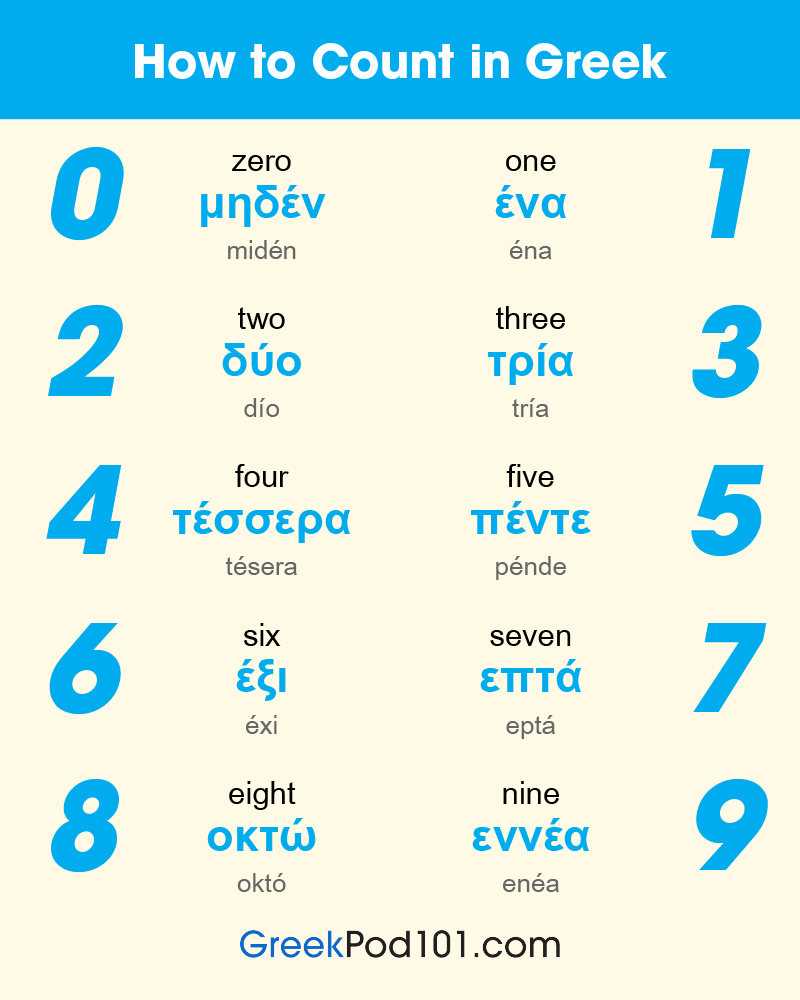
Grammar books usually consist of endless pages of rules and exceptions…so we’ve decided to make everything simpler for you!
In this overview of modern Greek grammar, we’ll introduce you to the very basics of Greek grammar, from vocabulary to cases. Therefore, if you’re contemplating learning Greek, then you’ve come to the right place!
In the following sections, you’ll find all of the basic grammar principles of the Greek language so you can start your language learning off on the right foot.
 Table of Contents
Table of Contents
1. General Rules

We’ve got some good news for you!
Greek grammar shares some similarities with English grammar:
- Both languages use the same types of words
- Both languages have a similar sentence structure
That being said, let’s explore these similarities in the following sections!
1 – Vocabulary
Just like the English language, Greek features the following word types:
- Nouns
η γάτα – i gáta – “the cat”
- Articles
η γάτα – i gáta – “the cat”
- Adjectives
η μικρή γάτα – i mikrí gáta – “the small cat”
- Verbs
Εγώ τρέχω. – Egó trého. – “I run.”
- Pronouns
Εγώ τρέχω. – Egó trého.- “I run.”
- Adverbs
Εγώ τρέχω γρήγορα. – Egó trého grígora. – “I run fast.”
- Conjunctions / Linking Words
Εγώ έχω έναν σκύλο και μία γάτα. – Egó ého énan skílo ke mía gáta. – “I have a dog and a cat.”
- Prepositions
Εγώ είμαι από την Ελλάδα. – Egó íme apó tin Elláda. – “I am from Greece.”
If you feel like expanding your vocabulary, check out our dedicated articles:
Customize your learning process by creating your own Word Bank, where you can categorize new words and even print them out!
2 – Sentence Structure
Both languages generally follow the SVO pattern (Subject-Verb-Object) when forming sentences. This is something that spurs many people forward with their plans to learn Greek and encourages those who have recently started. If you create your free lifetime account on GreekPod101.com, you’ll be able to create your first simple sentences from Lesson 1.

| Greek: Η Μαρία διαβάζει ένα βιβλίο. Romanization: I María diavázi éna vivlío. Translation: “Maria reads a book.” | ||
| Subject – Who? Η Μαρία | Verb – Action διαβάζει | Object – What? ένα βιβλίο. |
If you want to learn more, check out our Word Order article, where you’ll find extended analyses of the SVO pattern, along with some other less-common sentence patterns.
2. Verbs
A chapter that every Greek language learner struggles to master is verb conjugations. You see, according to the Greek verb system, verbs in Greek conjugate based on the subject of the sentence, the tense, and the mood.
1 – Tenses
The tenses of Greek verbs are:
- Present: A continuing action, something happening continuously or repeatedly, a general truth, or something that is in the process of happening. – It corresponds to the present simple and present continuous.
Example:
Greek: Εγώ μαγειρεύω κάθε μέρα.
Romanization: Egó mayirévo káthe méra.
Translation: “I cook every day.”
- Aorist: An action that happened in the past. Provides no information on how long it took, or whether the results are still in effect. – It corresponds to the past simple.
Example:
Greek: Εγώ μαγείρεψα χθες.
Romanization: Egó mayírepsa hthes.
Translation: “I cooked yesterday.”
- Imperfect: An action that happened in the past for a long period of time or in a repetitive way. – It corresponds to the past continuous.
Example:
Greek: Την προηγούμενη εβδομάδα, εγώ μαγείρευα κάθε μέρα.
Romanization: Tin proigúmeni evdomáda, egó mayíreva káthe méra.
Translation: “Last week, I was cooking every day.”

- Future simple: An action that will take place once or momentarily in the future.
Example:
Greek: Εγώ θα μαγειρέψω αύριο.
Romanization: Egó tha mayιrépso ávrio.
Translation: “I will cook tomorrow.”
- Future continuous: An action that will take place in the future continuously, repeatedly, or for a long time period.
Example:
Greek: Εγώ θα μαγειρεύω κάθε μέρα.
Romanization: Egó tha mayιrévo káthe méra.
Translation: “I will be cooking every day.”
- Present perfect: An action that has already taken place.
Example:
Greek: Εγώ έχω μαγειρέψει.
Romanization: Egó ého mayιrépsi.
Translation: “I have cooked.”
- Past perfect: An action that happened in the past before another action or at a certain time in the past.
Example:
Greek: Μέχρι τις 2 μ.μ, εγώ είχα μαγειρέψει.
Romanization: Μéhri tis dío (metá mesimvrían) egó íha mayιrépsi.
Translation: “By 2 p.m. I had cooked.”
- Future perfect: An action that will have taken place in the future by a certain time point.
Example:
Greek: Μέχρι τις 2 μ.μ, θα έχω μαγειρέψει.
Romanization: Μéhri tis dío (metá mesimvrías) egó tha ého mayιrépsi.
Translation: “By 2 p.m. I will have cooked.”
2 – Moods
Are you in the mood for some more in-depth knowledge?
As we have already mentioned, Greek verbs conjugate according to the mood, as well.
Here are the five moods of Greek verbs, along with examples of what they look like:
- Indicative mood: Presents the action or the event as something certain or real (e.g. an objective fact).
Example:
Greek: Εγώ μαγειρεύω κάθε μέρα.
Romanization: Egó mayirévo káthe méra.
Translation: “I cook every day.”
- Subjunctive mood: Presents the action or the event as something wanted, expected, or wished for.
Example:
Greek: Εγώ θέλω να μαγειρεύω κάθε μέρα.
Romanization: Egó thélo na mayirévo káthe méra.
Translation: “I want to cook every day.”
- Imperative mood: May express a command (order), request, or desire.
Example:
Greek: Mαγείρεψε τώρα!
Romanization: Mayírepse tóra!
Translation: “Cook now!”
- The participle:
– The uninflected form has an adverbial function and may indicate time, manner, cause, condition, etc.
Example:
Greek: Ο χρόνος περνάει γρήγορα μαγειρεύοντας.
Romanization: O hrónos pernái grígora mayirévodas.
Translation: “Time passes by quickly while cooking.”
– The inflected form has the function of an adjective, so it needs to agree in gender, number, and case with the noun it defines. It corresponds to the past participle when used on its own in speech.
Example:
Greek: Το κρέας είναι μαγειρεμένο.
Romanization: To kréas íne mayireméno.
Translation: “The meat is cooked.”
- The infinitive: Uninflected form. Not to be confused with the English infinitive. The Greek infinitive is used for the formation of certain tenses: present perfect, past perfect, and future perfect. It corresponds to the past participle when used as part of the verb in the aforementioned tenses.
Example:
Greek: Εγώ έχω μαγειρέψει.
Romanization: Egó ého mayιrépsi.
Translation: “I have cooked.”
Greek: Μέχρι τις 2 μ.μ, εγώ είχα μαγειρέψει.
Romanization: Μéhri tis dío (metá mesimvrían) egó íha mayιrépsi.
Translation: “By 2 p.m. I had cooked.”
Greek: Μέχρι τις 2 μ.μ, θα έχω μαγειρέψει.
Romanization: Μéhri tis dío (metá mesimvrían) egó tha ého mayιrépsi.
Translation: “By 2 p.m. I will have cooked.”
3. Nouns & Articles
Nouns and articles are another important aspect of Greek grammar. They are gendered and get declined according to each case.
1 – Gender
In Greek grammar, gender is a way of classifying nouns, and this system certainly perplexes many new Greek learners. All Greek nouns are assigned to one of three genders:

- Masculine – e.g. ο σκύλος – o skílos – “the dog”
- Feminine – e.g. η γάτα – i gáta – “the cat”
- Neuter – e.g. το ποντίκι – to pondíki – “the mouse”
As you might have already noticed, there are also different articles for each gender category. Generally, the articles should match the gender of the noun.
Check out our Greek Word of the Day and expand your vocabulary! Learning a new word each day along with its article will quickly familiarize you with this concept.
2 – Cases
Moreover, nouns change their suffixes according to their placement within a sentence. Therefore, there are four cases:
- Nominative: In this case, the noun is the subject or predicate of the sentence.
Example:
Greek: Ο σκύλος τρέχει.
Romanization: O skílos tréhi.
Translation: “The dog is running.”
Greek: Αυτό είναι ένας σκύλος.
Romanization: Aftó íne énas skílos.
Translation: “This is a dog.”
- Genitive: This case is typically used to express possession or indirect objects, among other things.
Example:
Greek: Η μπάλα του σκύλου είναι κόκκινη.
Romanization: I bála tu skílu íne kókkini.
Translation: “The dog’s ball is red.”
- Accusative: Here, the noun is typically the object of the sentence or part of a prepositional phrase.
Example:
Greek: Εγώ χαϊδεύω τον σκύλο.
Romanization: Egó haidévo ton skílo.
Translation: “I pet the dog.”
Greek: Η μπάλα είναι για τον σκύλο.
Romanization: I bála íne ya ton skílo.
Translation: “The ball is for the dog.”
- Vocative: This is used when addressing someone or something.
Example:
Greek: Σκύλε, κάτσε!
Romanization: Skíle, kátse!
Translation: “Dog, sit!”
4. Adjectives
Like in English, adjectives are usually placed before the noun.
Example:
Greek: ο μικρός σκύλος.
Romanization: o mikrós skílos
Translation: “the small dog”
However, adjectives get declined according to the gender of the noun they refer to, as well as the number and the case.
Example:
Greek: η μικρή γάτα
Romanization: i mikrí gáta
Translation: “the small cat”
Greek: η ουρά της μικρής γάτας
Romanization: i urá tis mikrís gátas
Translation: “the tail of the small cat”
Greek: οι μικρές γάτες
Romanization: i mikrés gátes
Translation: “the small cats”
5. Adverbs
We saved this category for last, because…guess what?! Adverbs in Greek don’t get inflected! These words remain the same, regardless of the way they’re used in speech.

Generally, adverbs are placed either right after the verb or at the end of the sentence.
Example:
Greek: Ο σκύλος τρέχει γρήγορα.
Romanization: O skílos tréhi grígora.
Translation: “The dog is running fast.”
6. Conclusion
That’s (almost) all, folks!
Sure, there’s so much more to analyze about Greek grammar! Whole books are written for that purpose!
However, this wasn’t our intention here. We simply wanted to introduce you to the basic Greek grammar principles so you can start making sense of it right from the beginning.
Greek is a wonderful language and, although the grammar may seem a bit complicated, we’re sure you are going to master it in no time!
Start learning Greek today for free and discover our many articles, vocabulary lists, and YouTube videos!
Before you go, let us know in the comments which aspect of Greek grammar is most challenging for you so far. We’d love to hear from you and help you out with anything you’re struggling with.
Happy Greek learning!

Popular Sayings & Quotes in Greek

Quotes are an essential part of every language, as they demonstrate how the local people perceive important things about life. With this in mind, we’ve prepared for you a comprehensive blog post on the most popular sayings and quotes in Greek.
Take a step closer to the Greek language and culture, and start using these quotes today.
- → And since you’re here, don’t forget to become familiar with the Essential Idioms That Will Make You Sound Like a Native Speaker!
 Table of Contents
Table of Contents
- Quotes About Success
- Quotes About Life
- Quotes About Time
- Quotes About Love
- Quotes About Family
- Quotes About Friendship
- Quotes About Food
- Quotes About Health
- Quotes About Language Learning
- Conclusion
1. Quotes About Success

Who doesn’t want to be successful? Raise your hands, please!
Oh, I thought so… Anybody?
Here are some quotes about success in Greek to motivate you in your everyday life:
- Greek: Για να πετύχεις στη ζωή χρειάζεσαι δύο πράγματα: άγνοια και αυτοπεποίθηση.
- Romanization: Ya na petíhis sti zoí hriázese dío prágmata: ágnia ke aftopepíthisi.
- Translation: “To succeed in life, you need two things: ignorance and confidence.”
- Greek: Έχω αποτύχει ξανά και ξανά και ξανά στη ζωή μου και αυτός είναι ο λόγος που πετυχαίνω.
- Romanization: Ého apotíhi xaná ke xaná ke xaná sti zoí mu ke aftós íne o lógos pu petihéno.
- Translation: “I’ve failed over and over and over again in my life and that is why I succeed.”
- Greek: Επιτυχημένος είναι ο άνθρωπος που μπορεί να θέσει σταθερά θεμέλια με τα τούβλα που οι άλλοι έχουν πετάξει πάνω του.
- Romanization: Epitihiménos íne o ánthropos pu borí na thési statherá themélia me ta túvla pu i áli éhun petáxi páno tu.
- Translation: “A successful man is one who can lay a firm foundation with the bricks others have thrown at him.”
Intrigued to learn more? Check out our vocabulary list of the Top 11 Quotes About Success in Greek!
2. Quotes About Life

Many ancient Greek philosophers have studied life and developed many theories about our whole existence. But this was just the beginning. Since then, many people worldwide have tried to decrypt the miracle of life from their point of view.
Here are some meaningful quotes in Greek concerning the phenomenon of life:
- Greek: Γίνε εσύ η αλλαγή που θες να δεις στον κόσμο.
- Romanization: Yíne esí i alayí pu thes na dis ston kósmo.
- Translation: “Be the change you want to see in the world.”
- Greek: Η ευτυχία δεν είναι κάτι που παίρνουμε έτοιμο. Έρχεται μέσα από τις δικές μας πράξεις.
- Romanization: Ι eftihía den íne káti pu pérnume étimo. Érhete mésa apó tis dikés mas práxis.
- Translation: “Happiness is not something ready-made. It comes from your own actions.”
- Greek: Δεν έχει σημασία το πόσο αργά προχωράς, αρκεί να μη σταματήσεις.
- Romanization: Den éhi simasía to póso argá prohorás, arkí na mi stamatísis.
- Translation: “It does not matter how slowly you go as long as you do not stop.”
If you need another dose of motivation, check out our full vocabulary list on the Top 10 Inspirational Quotes in Greek!
3. Quotes About Time

Time passes by…even while you’re reading this blog post! Moments are gone forever and become precious memories.
Below, you can find some of the most popular quotes about time in Greek:
- Greek: Μην αφήνετε να περνά ο χρόνος χωρίς να βιώνετε τις στιγμές.
- Romanization: Min afínete na perná o hrónos horís na viónete tis stigmés.
- Translation: “Don’t let time pass by without living the moments.”
- Greek: Μια αστραπή η ζωή μας, μα προλαβαίνουμε.
- Romanization: Mia astrapí i zoí mas, ma prolavénume.
- Translation: “Our life is (like) lightning, but we’re catching up.”
- Greek: Το πρόβλημα είναι ότι νομίζετε πως έχετε χρόνο.
- Romanization: To próvlima íne óti nomízete pos éhete hróno.
- Translation: “The problem is that you think you have time.”
4. Quotes About Love

Oh love… What’s more beautiful in this life than love?
Greek culture is purely based on loving each other: your family, your friends, your partners, and even your acquaintances.
Here are some popular quotes about love in Greek:
- Greek: Το να αγαπάς δεν είναι τίποτα. Το να σε αγαπούν είναι κάτι. Αλλά το να αγαπάς και να σε αγαπούν είναι τα πάντα.
- Romanization: To na agapás den íne típota. To na se agapún íne káti. Alá to na agapás ke na se agapún íne ta pánda.
- Translation: “To love is nothing. To be loved is something. But to love and be loved is everything.”
- Greek: Είμαι πιο πολύ ο εαυτός μου όταν είμαι μαζί σου.
- Romanization: Íme pio polí o eaftós mu ótan íme mazí su.
- Translation: “I’m much more me when I’m with you.”
- Greek: Σ’ ευχαριστώ που πάντα είσαι το ουράνιο τόξο μου μετά την καταιγίδα.
- Romanization: S’ efharistó pu pánda íse to uránio tóxo mu metá tin kateyída.
- Translation: “Thank you for always being my rainbow after the storm.”
Are you craving more romantic quotes in Greek? We thought so! GreekPod101 has you covered with our vocabulary list of Quotes About Love.
5. Quotes About Family

Greek family values are very strong. As such, many elements of Greek culture, ethics, and tradition are passed on from generation to generation. Within the same context, social life revolves around the family and the extended family. We could say that family is the core of Greek society.
Here are some popular quotes about family in Greek:
- Greek: Η οικογένειά μου είναι η δύναμή μου και η αδυναμία μου.
- Romanization: I ikoyéniá mu íne i dínamí mu ke i adinamía mu.
- Translation: “My family is my strength and my weakness.”
- Greek: Πρέπει να υπερασπίζεσαι την τιμή σου. Και την οικογένειά σου.
- Romanization: Prépi na iperaspízese tin timí su. Ke tin ikoyéniá su.
- Translation: “You have to defend your honor. And your family.”
- Greek: Η οικογένεια είναι ένα από τα αριστουργήματα της φύσης.
- Romanization: I ikoyénia íne éna apó ta aristuryímata tis físis.
- Translation: “The family is one of nature’s masterpieces.”
Read through more quotes on our Top 10 Quotes About Family in Greek vocabulary list, and while you’re at it, learn the Must-Know Terms for Family Members.
6. Quotes About Friendship

Friends are the family we choose. They play an invaluable role throughout our entire life. They hear our thoughts and offer us a brand-new perspective for every situation.
Below are some quotes about friendship in Greek that touch on this:
- Greek: Το μεγαλύτερο δώρο της ζωής είναι η φιλία, και το έχω λάβει.
- Romanization: To megalítero dóro tis zoís íne i filía ke to ého lávi.
- Translation: “The greatest gift of life is friendship, and I have received it.”
- Greek: Οι φίλοι δείχνουν την αγάπη τους στους δύσκολους καιρούς, όχι στην ευτυχία.
- Romanization: I fíli díhnun tin agápi tus stus dískolus kerús, óhi stin eftihía.
- Translation: “Friends show their love in times of trouble, not in happiness.”
- Greek: Φίλος είναι κάποιος που σου δίνει πλήρη ελευθερία να είσαι ο εαυτός σου.
- Romanization: Fílos íne kápios pu su díni plíri elefthería na íse o eaftós su.
- Translation: “A friend is someone who gives you total freedom to be yourself.”
Also study our Top 10 Quotes About Friendship in Greek vocabulary list, and express your gratitude to your Greek friends!
7. Quotes About Food

We’re sure that you’ve at least heard of Greek cuisine. Some of you might have even tasted some Greek specialties in a taverna by the sea. Cooking is an integral part of Greek culture, so you’ll often hear people talking about food and exchanging recipes.
Let’s take a look at some quotes about food in Greek:
- Greek: Η μαγειρική είναι ένα είδος ψυχοθεραπείας.
- Romanization: I mayirikí íne éna ídos psihotherapíasi.
- Translation: “Cooking is a form of psychotherapy.”
- Greek: Το πρωινό είναι το σημαντικότερο γεύμα της ημέρας.
- Romanization: To proinó íne to simadikótero yévma tis iméras.
- Translation: “Breakfast is the most important meal of the day.”
- Greek: Μια ισορροπημένη διατροφή μπορεί να προσφέρει πολλά οφέλη για την υγεία.
- Romanization: Mia isoropiméni diatrofí borí na prosféri pollá oféli ya tin iyía.
- Translation: “A balanced diet can offer plenty of benefits for the health.”
Interested in learning more about Greek cuisine? Visit our vocabulary lists on the most popular Greek foods and the top 10 foods to help you live longer!
8. Quotes About Health

The ancient Greek physician Hippocrates is thought of as the Father of Modern Medicine. We can say that Greeks value health above any other commodity in life.
It’s not a coincidence, after all, that in Greek we say Γεια σου! (Ya su!) to say “Hello!“ This word stems from υγεία (iyía), meaning “health.“ So, every time you greet someone, you wish for them to be healthy at the same time!
Since Hippocrates’s time, medicine has flourished, leading to more and more people perceiving health as the ultimate commodity. Therefore, talking about health is part of our everyday lives.
Let’s take a look at some quotes about health in Greek:
- Greek: Όποιος έχει υγεία μπορεί να έχει δύναμη και ελπίδα. Και όποιος έχει αυτά, έχει τα πάντα.
- Romanization: Ópios éhi iyía borí na éhi dínami ke elpída. Ke ópios éhi aftá, éhi ta pánda.
- Translation: “Whoever has health may have strength and hope. And whoever has those, has everything.”
- Greek: Το γέλιο κάνει καλό στην υγεία.
- Romanization: To yélio káni kaló stin iyía.
- Translation: “Laughter is good for the health.”
- Greek: Αποφάσισα να είμαι ευτυχισμένος επειδή κάνει καλό στην υγεία.
- Romanization: Apofásisa na íme eftihisménos epidí káni kaló stin iyía.
- Translation: “I’ve decided to be happy because it is good for my health.”
9. Quotes About Language Learning

Did you know that more than half of Greeks speak English? Indeed, language learning is integrated within the Greek educational system, with many people learning other languages as well, including German, French, Italian, and Spanish.
What better way to motivate you in your own language studies than to close our article with quotes about language learning in Greek?
- Greek: Μια νέα γλώσσα είναι μια νέα ζωή.
- Romanization: Mia néa glósa íne mia néa zoí.
- Translation: “A new language is a new life.”
- Greek: Τα όρια της γλώσσας μου είναι τα όρια του κόσμου μου.
- Romanization: Ta ória tis glósas mu íne ta ória tu kósmu mu.
- Translation: “The limits of my language are the limits of my world.”
- Greek: Δεν θα μπορείς να καταλάβεις ποτέ μία γλώσσα, αν δεν καταλαβαίνεις τουλάχιστον δύο.
- Romanization: Den tha borís na katalávis poté mía glósa, an den katalavénis tuláhiston dío.
- Translation: “You can never understand one language until you understand at least two.”
If you’re interested in learning more, check out our vocabulary list on Language Learning Quotes.
10. Conclusion
In this blog post, we tried to present in Greek some of the most popular quotes and sayings. By studying them, you’ll gain more fluency and be able to understand the Greek language to a greater extent.
Have you heard of any other quote in Greek that we didn’t include above?
Please let us know in the comments; we always love hearing from you!

Telling Time in Modern Greek: The Greek Word for Time & More

Time is a human invention. It’s used to make our everyday lives easier, since it helps us communicate effectively.
Ever wondered how to tell the hours, minutes, and seconds in Greek? Or about the Greek word for time?
Even if you’ve never wondered, you’ll certainly need this knowledge while visiting Greece or when talking with your Greek friends.
From arranging a business appointment to arranging a date with someone you really like, telling the time in Greek is a pretty important skill to learn.
Telling the time in Greek is very similar to English, so this is considered an easy chapter. The first thing you need to know is that Greece uses both the twenty-four-hour format and the twelve-hour format, the latter of which is more often used in verbal speech. Secondly, you need to familiarize yourself with the Greek numbers.
Thirdly, just keep reading and all of your questions around how to tell the time in Greek will be answered.
 Table of Contents
Table of Contents
- How to Ask for the Time in Greek
- The Hours in Greek
- Minutes and Seconds in Greek
- The Hours Divided into Minute-Packages
- General Time Reference Throughout the Day
- Time Adverbs in Greek
- Greek Proverbs and Sayings Related to Time
- Conclusion
1. How to Ask for the Time in Greek

Asking for the time in Greek is probably the most important aspect of time-telling you need to know.
- Greek: Τι ώρα είναι;
- Romanization: Ti óra íne?
- Translation: “What time is it?”
Pretty easy, right?
Now let’s have a look at how to ask for the time of a specific event.
- Greek: Τι ώρα είναι ο αγώνας / η συγκέντρωση / το ραντεβού;
- Romanization: Ti óra íne o agónas / i singéndrosi / to randevú?
- Translation: “What time is the game / the gathering / the appointment?”
Now let’s assume your phone battery is dead and you’re not wearing a watch. How could you possibly find out what time it is? The answer lies right below.
- Greek: Μήπως έχετε ώρα, παρακαλώ;
- Romanization: Mípos éhete óra, parakaló?
- Translation: “Do you have the time, please?”
The question above is widely used and it’s considered pretty polite when you’re not sure if someone has a watch or when you don’t know each other. The answer here would be the current time, thus this phrase can be used as an alternative to the simple Τι ώρα είναι; question.
2. The Hours in Greek

First things first, let’s have a look at how to say the hours in Greek.
- Greek: η ώρα
- Romanization: i óra
- Translation: “hour” / “o’ clock”
- Greek: ακριβώς
- Romanization: akrivós
- Translation: “sharp”
So, when you need to tell the hour, you can use the sentence below.
- Greek: Είναι……………….. η ώρα (ακριβώς).
- Romanization: Íne ………………….. i óra (akrivós).
- Translation: “It’s ……………………….. o’clock (sharp).”
While the addition of ακριβώς is optional, you can fill the blank space above with one of the hours below.
Hours in Greek:
- μία (mía) — “one”
- δύο (dío) — “two”
- τρεις (tris) — “three”
- τέσσερις (téseris) — “four”
- πέντε (péde) — “five”
- έξι (éxi) — “six”
- επτά/εφτά (eptá/eftá) — “seven”
- οκτώ/οχτώ (októ/ohtó) — “eight”
- εννέα/εννιά (enéa/eniá) — “nine”
- δέκα (déka) — “ten”
- έντεκα (édeka) — “eleven”
- δώδεκα (dódeka) — “twelve”
In verbal speech in Greece, the most common way to tell the time is based on the twelve-hour clock. However, in written speech, it’s more common to use the twenty-four-hour clock.
3. Minutes and Seconds in Greek

Time flies. With GreekPod101.com, you won’t realize how quickly you’ll be an expert in Greek. As minutes and seconds pass by, you get a little bit closer to your Greek learning goals!
So, here’s how to say the minutes and the seconds in Greek. It will take only a minute to learn this!
- Greek: το λεπτό / τα λεπτά
- Romanization: to leptó / ta leptá
- Translation: “minute” / “minutes”
- Greek: το δευτερόλεπτο / τα δευτερόλεπτα
- Romanization: to defterólepto / ta defterólepta
- Translation: “second” / “seconds”
- Greek: και
- Romanization: ke
- Translation: equivalent to “and” / “past” in English
- Greek: παρά
- Romanization: pará
- Translation: equivalent to “to” in English
Now, let’s have a look at how to tell the time through some comprehensive examples:
- Greek: Είναι τρεις και δεκαοκτώ (03:18 / 15:18).
- Romanization: Íne tris ke dekaoktó.
- Translation: “It’s eighteen past three.”
- Greek: Είναι δύο παρά εικοσιπέντε (01:35 / 13:35).
- Romanization: Íne dío pará ikosipénde.
- Translation: “It’s twenty-five to two.”
4. The Hours Divided into Minute-Packages

- Greek: μισή
- Romanization: misí
- Translation: “half”
- Greek: τέταρτο
- Romanization: tétarto
- Translation: “quarter”
There is no Greek equivalent for “a third” of the hour. This can be translated in Greek as και είκοσι
or παρά είκοσι, as referenced in the previous section of this article.
Here are some helpful phrases for telling time in Greek this way:
- Greek: Είναι έξι και τέταρτο.
- Romanization: Íne éxi ke tétarto.
- Translation: “It’s a quarter past six.”
- Greek: Είναι οκτώ παρά τέταρτο.
- Romanization: Íne októ pará tétarto.
- Translation: “It’s a quarter to eight.”
- Greek: Είναι έξι και μισή.
- Romanization: Íne éxi ke misí.
- Translation: “It’s half past six.”
5. General Time Reference Throughout the Day

Since the twelve-hour clock is preferred in oral speech in Greece, when someone says “at nine o’clock,” you probably need to know if they’re referring to the morning or the evening. This is indicated by using the phrases below.
- Greek: το πρωί
- Romanization: to proí
- Translation: “in the morning”
Example:
Greek: Στις έξι (η ώρα) το πρωί.
Romanization: Stis éxi (i óra) to proí.
Translation: “At six (o’clock) in the morning.”
- Greek: το απόγευμα
- Romanization: to apóyevma
- Translation: “the afternoon”
Example:
Greek: Στις τρεις (η ώρα) το απόγευμα.
Romanization: Stis tris (i óra) to apóyevma.
Translation: “At three (o’clock) in the afternoon.”
- Greek: το βράδυ
- Romanization: to vrádi
- Translation: “the night”
Example:
Greek: Στις δέκα (η ώρα) το βράδυ.
Romanization: Stis déka (i óra) to vrádi.
Translation: “At ten (o’clock) at night.”
While the words above are common in everyday speech, in formal situations—for example, in the news—the way to indicate the exact time in Greek is by using the appropriate phrase from the list below.
- Greek: προ μεσημβρίας (π.μ.)
- Romanization: pro mesimvrías
- Translation: “ante meridiem” (a.m.) / “before midday”
- Greek: μετά μεσημβρίαν (μ.μ.)
- Romanization: metá mesimvrían
- Translation: “post meridiem” (p.m.) / “after midday”
However, at this point, you should note that in Greek you need to say the full phrase instead of just the initials.
Here are some more time reference phrases you can use to indicate different time periods throughout the day.
- Greek: το μεσημέρι
- Romanization: to mesiméri
- Translation: “noon” / “midday”
Example:
Greek: Στις δώδεκα το μεσημέρι.
Romanization: Stis dódeka to mesiméri.
Translation: “At twelve o’clock noon.”
- Greek: τα μεσάνυχτα
- Romanization: ta mesánihta
- Translation: “midnight”
Example:
Greek: Είναι δώδεκα τα μεσάνυχτα.
Romanization: Íne dódeka ta mesánihta.
Translation: “It’s twelve o’clock midnight.”
- Greek: το ξημέρωμα / τα ξημερώματα
- Romanization: to ximéroma / ta ximerómata
- Translation: “dawn/early morning hours”
Example:
Greek: Ήρθε στις πέντε η ώρα τα ξημερώματα.
Romanization: Írthe stis pénde i óra ta ximerómata.
Translation: “He came at five o’clock in the morning.”
6. Time Adverbs in Greek
In this section, we present you with a list of some useful time adverbs in Greek to cover each and every case. All of these words for time in Greek can answer the question “When?”

- Greek: τώρα
- Romanization: tóra
- Translation: “now”
- Greek: αυτήν τη στιγμή
- Romanization: aftín ti stigmí
- Translation: “currently” / “at this moment”
- Greek: εν τω μεταξύ
- Romanization: en to metaxí
- Translation: “meanwhile”
- Greek: πριν
- Romanization: prin
- Translation: “before”
- Greek: μετά
- Romanization: metá
- Translation: “after” / “later”
- Greek: σύντομα
- Romanization: síndoma
- Translation: “soon”
- Greek: σχεδόν
- Romanization: schedón
- Translation: “almost”
- Greek: σε λίγο / σε λιγάκι
- Romanization: se lígo / se ligáki
- Translation: “in a bit” / “in a little while”
- Greek: το συντομότερο δυνατό
- Romanization: to sindomótero dinató
- Translation: “as soon as possible”
- Greek: οποιαδήποτε στιγμή
- Romanization: opiadípote stigmí
- Translation: “anytime”
- Greek: για πολύ καιρό
- Romanization: ya polí keró
- Translation: “for a long time”
7. Greek Proverbs and Sayings Related to Time

Learning some proverbs always takes you a step further into getting to know the Greek culture. Therefore, here are some of the most popular proverbs, sayings, and time expressions in Greek.
- Greek: Ο χρόνος είναι χρήμα.
- Romanization: O hrónos íne hríma.
- Translation: “Time is money.”
- Greek: Ο χρόνος είναι ο καλύτερος γιατρός.
- Romanization: O hrónos íne o kalíteros yatrós.
- Translation: “Time is the best doctor (corresponding to ‘Time heals all wounds.’).”
- Greek: Ο χρόνος πίσω δεν γυρνά.
- Romanization: O hrónos píso den yirná.
- Translation: “Time doesn’t come back.”
- Greek: Ή τώρα ή ποτέ.
- Romanization: Í tóra i poté.
- Translation: “It’s either now or never.”
8. Conclusion

O χρόνος πίσω δεν γυρνά. This is certain.
So start learning Greek today with GreekPod101.com!
Ή τώρα ή ποτε!
Start by practicing the pronunciation of some of the most important words included in this article. Then, we suggest that you read our blog post on Dates in Greek to gain a more spherical knowledge on the subject.
Then, you can create a free personal account and browse through our wide variety of educational material. You can also upgrade to Premium Plus and take advantage of our MyTeacher program to learn Greek with your own personal tutor, who will answer any questions you might have!
In the meantime… What time is it now while you read this blog post? Write the current hour in Greek in the comments section below.

Your Guide to Gender in Greek Grammar
In the Greek language, there are three genders: masculine, feminine, and neuter. Each noun in Greek has a specific gender and—unlike in English—these genders don’t only apply exclusively to nouns referring to people, but also to nouns that refer to things or animals. Therefore, gender should be viewed as a grammatical attribute of a noun and not necessarily as the sex of a person, animal, or thing.
The gender roles in Greek society are deeply influenced by the patriarchal family model, although it has been modernized over the past few decades, attempting to ensure that women are equal to men. If you take a look at Greek mythology, the gods normally represent physical power, whereas goddesses represent wisdom, love, and organization. However, today’s Greek society is quite balanced when it comes to the differences between the two genders.
In this article, we’ve gathered all the tips and tricks to help you understand grammatical Greek genders.

Table of Contents
- The Word “Gender” in Greek
- Articles in Greek According to Their Gender
- Guessing the Gender of a Word in Greek
- Memorizing the Gender of a Noun in Greek
- Gender Variations for Adjectives
- Conclusion
1. The Word “Gender” in Greek
- Greek: γένος
- Romanization: yénos
- Translation: “gender”
The word above is utilized in grammar to express the gender of a noun or an adjective.
- Greek: φύλο
- Romanization: fílo
- Translation: “gender”
This one is utilized in everyday speech to express the gender/sex of a person.
In Greek grammar, we use the word γένος, therefore there are three genders, which are: αρσενικό (arsenikó) meaning “masculine,” θηλυκό (thilikó) meaning “feminine,” and ουδέτερο (udétero) meaning “neuter.” These genders characterize nouns, adjectives, articles, and some pronouns and participles.
2. Articles in Greek According to Their Gender
The definitive articles in Greek are: ο (masculine), η (feminine), and το (neuter). They change depending on the grammatical case, though they all translate to the English word “the.”
Masculine Definitive Article:
Nominative: ο
Genitive: του
Accusative: τον
Feminine Definitive Article:
Nominative: η
Genitive: της
Accusative: τη(ν)
Neuter Definitive Article:
Nominative: το
Genitive: του
Accusative: το
Here’s an example of how these definite articles can be used in everyday conversations.
- Greek: Στο εστιατόριο ο άντρας κοιτούσε τον κατάλογο, η γυναίκα κοιτούσε το κινητό και το παιδί έπαιζε με τα παιχνίδια του.
- Romanization: Sto estiatório o ándras kitúse ton katálogo, i yinéka kitúse to kinitó ke to pedí épeze me ta pehnídia tu.
- Translation: “In the restaurant, the man was looking at the menu, the woman was looking at the phone, and the child was playing with his toys.”
The indefinite articles in Greek are: ένας (masculine), μια/μία (feminine), and ένα (neuter). They also get inflected according to the case.
Masculine Indefinite Article:
Nominative: ένας
Genitive: ενός
Accusative: έναν
Feminine Indefinite Article:
Nominative: μια
Genitive: μιας
Accusative: μια
Neuter Indefinite Article:
Nominative: ένα
Genitive: ενός
Accusative: ένα
Here’s an example of how to use indefinite articles.
- Greek: Ένας άντρας, μια γυναίκα και ένα παιδί έκατσαν στο δίπλα τραπέζι.
- Romanization: Énas ándras, mia yinéka ke éna pedí ékatsan sto dípla trapézi.
- Translation: “A man, a woman, and a child sat on the nearby table.”
3. Guessing the Gender of a Word in Greek
Recognizing the gender of a noun in Greek can be tricky, since all of these get inflected, resulting in different endings depending on the case they’re used in. However, in this section, we’ll refer to the most popular masculine, feminine, and neuter noun endings in the nominative case (i.e. the dictionary form).
Masculine endings:
-ος Examples: ο άνθρωπος (o ánthropos) meaning “the human”; ο καιρός (o kerós) meaning “the weather”; ο ήλιος (o ílios) meaning “the sun”; ο κόσμος (o kózmos) meaning “the world.”
-ας Examples: ο μπαμπάς (o babás) meaning “the father”; ο άντρας (o ándras) meaning “the man”; ο κανόνας (o kanónas) meaning “the rule”; ο ελέφαντας (o eléfandas) meaning “the elephant.”
-ης Examples: ο λογιστής (o loyistís) meaning “the accountant”; ο υπολογιστής (o ipoloyistís) meaning “the computer”; ο πελάτης (o pelátis) meaning “the customer”; ο μαθητής (o mathitís) meaning “the student.”
-ες Examples: ο καφές (o kafés) meaning “the coffee”; ο λεκές (o lekés) meaning “the stain.”
-ούς Examples: ο παππούς (o papús) meaning “the grandfather.”
-έας Examples: ο γραμματέας (o gramatéas) meaning “the secretary.”
Feminine endings:
-ος Examples: η μέθοδος (i méthodos) meaning “the method”; η άνοδος (i ánodos) meaning “the rise”; η κάθοδος (i káthodos) meaning “the descent”; η οδός (i odós) meaning “the street”; η λεωφόρος (i leofóros) meaning “the avenue.”
-α Examples: η μητέρα (i mitéra) meaning “the mother”; η καρέκλα (i karékla) meaning “the chair”; η θάλασσα (i thálasa) meaning “the sea”; η ώρα (i óra) meaning “the hour”; η αγελάδα (i ageláda) meaning “the cow.”
-η Examples: η λέξη (i léxi) meaning “the word”; η αγάπη (i agápi) meaning “the love”; η ψυχή (i psihí) meaning “the soul”; η ζάχαρη (i záhari) meaning “the sugar”; η οθόνη (i othóni) meaning “the monitor.”
-ού Examples: η μαϊμού (i maimú) meaning “the monkey.”
-ώ Examples: η ηχώ (i ihó) meaning “the echo.”
Neuter endings:
-ος Examples: το λάθος (to láthos) meaning “the passion”; το γεγονός (to yegonós) meaning “the incident.”
-ο Examples: το φυτό (to fitó) meaning “the plant”; το βιβλίο (to vivlío) meaning “the book”; το γραφείο (to grafío) meaning “the office”; το ξενοδοχείο (to xenodohío) meaning “the hotel”; το λεωφορείο (to leoforío) meaning “the bus.”
-ι Examples: το σπίτι (to spíti) meaning “the house”; το κουτί (to kutí) meaning “the box”; το πουλί (to pulí) meaning “the bird.”
-α Examples: το πρόβλημα (to próvlima) meaning “the problem”; το μάθημα (to máthima) meaning “the lesson”; το θέμα (to théma) meaning “the subject.”
-ιμο Examples: το φταίξιμο (to ftéximo) meaning “the fault”; το πλύσιμο (to plísimo) meaning “the washing.”
Major Exception:
There are some neuter nouns ending in -υ, which are the following:
- βράδυ (vrádi) — “night”
- στάχυ (stáhi) — “ear; the plant”
- δόρυ (dóri) — “spear”
- οξύ (oxí) — “acid”
- δίχτυ (díhti) — “net”
- δάκρυ (dákri) — “tear”
For more information on how to tell the gender of a noun, check out this video lesson.
4. Memorizing the Gender of a Noun in Greek
As you might have noticed, the -ος (-os) ending is found in nouns of all three genders, so it’s difficult to guess the gender by the ending. In this case, you should try to find another nearby word, preferably an article, which indicates the gender of the noun.
But what if there’s no indication of the noun’s gender around? Then, you can check if the noun is stressed on its last syllable; if it is, you can at least be sure that it’s not a neutral noun.
Another tricky part of the Greek language gender rules which confuses a lot of learners is the fact that there are many nouns that end with -ος (-os), which can be either masculine or feminine. Those usually indicate a profession, such as ο/η γιατρός (o/i yatrós) meaning “doctor” or ο/η δικηγόρος (o/i dikigóros) meaning “lawyer.”
It’s easy to guess the gender of some Greek nouns that refer directly to a specific sex, like the words μητέρα or μπαμπάς, because they follow their sex. But that’s not always the case. For example, το αγόρι (to agóri) meaning “the boy” is not a masculine noun; it’s neuter!
The best thing you can do to memorize the gender of a noun in Greek is to learn the noun in its dictionary form together with its article. For example, the word γάλα (gála) meaning “milk” which ends in -α could give the impression that it’s feminine—but it’s neuter. So memorizing it as το γάλα (to gála) instead could help you avoid that confusion.
5. Gender Variations for Adjectives
Adjectives can vary depending on the gender of the noun they define. Each adjective changes its ending in a different manner.
Let’s have a look at some examples below.
Normally, when the male adjective ends in -ος, then the feminine ending will be -η and the neuter ending will be -ο.
– καλ-ός / καλ-ή / καλ-ό
- Greek: Αυτός o δάσκαλος είναι πολύ καλός.
- Romanization: Aftós o dáskalos íne polí kalós.
- Translation: “This (masculine) teacher is very good.”
- Greek: Αυτή ή δασκάλα είναι πολύ καλή.
- Romanization: Aftí i daskála íne polí kalí.
- Translation: “This (feminine) teacher is very good.”
- Greek: Αυτό το παιδί είναι πολύ καλό.
- Romanization: Aftó to pedí íne polí kaló.
- Translation: “This kid is very good.”
In the same manner, indicatively, the following adjectives change their ending when referring to masculine, feminine, or neuter nouns:
ελεύθερος (eléftheros) — “free”
άρρωστος (árrostos) — “sick”
όμορφος (ómorfos) — “good-looking”
άσχημος (áschimos) — “ugly”
έξυπνος (éxipnos) — “smart”
Another common category of adjectives includes masculine adjectives ending in -ος, changing the feminine to -α and the neuter to -ο.
– άδει-ος / άδει-α / άδει-ο
- Greek: Ο χώρος ήταν άδειος.
- Romanization: O hóros ítan ádios.
- Translation: “The space was empty.”
- Greek: Η αίθουσα ήταν άδεια.
- Romanization: I éthusa ítan ádia.
- Translation: “The classroom was empty.”
- Greek: Το κουτί ήταν άδειο.
- Romanization: To kutí ítan ádio.
- Translation: “The box was empty.”
In the same manner, indicatively, the following adjectives change their ending when referring to masculine, feminine, or neuter nouns:
ωραίος (oréos) — “nice”
άγριος (ágrios) — “wild”
γαλάζιος (galázios) — “light blue”
γελοίος (yelíos) — “ridiculous”
αιώνιος (eónios) — “eternal”
Another category of adjectives affected by the gender of the noun is as follows:
– βαθ-ύς / βαθ-ιά / βαθ-ύ
- Greek: Ο βαθύς ποταμός.
- Romanization: O vathís potamós.
- Translation: “The deep river”
- Greek: Η βαθιά λίμνη.
- Romanization: I vathiá límni.
- Translation: “The deep lake”
- Greek: Το βαθύ πηγάδι.
- Romanization: To vathí pigádi.
- Translation: “The deep water well”
In the same manner, the following adjectives change their endings when defining masculine, feminine, or neuter nouns:
ελαφρύς (elafrís) — “light”
βαρύς (varís) — “heavy”
μακρύς (makrís) — “long”
πλατύς (platís) — “wide”
παχύς (pahís) — “thick”
If you’re interested in learning more about Greek adjectives, you’re in luck!
Just take a look at our article on the Top 100 Greek Adjectives. And if you feel like digging deeper into Greek grammar, check out lessons 13-17 of our Intermediate series.
6. Conclusion
Recognizing the gender of each noun in Greek isn’t easy. We get it. However, if you follow the above tips and tricks, you’ll be able to guess the gender of a noun or an adjective accurately in most cases. With experience, practice, and study, we’re sure you’ll soon become a master of Greek noun gender.
At GreekPod101.com, we aim to provide you with everything you need to know about the Greek language in a fun and interesting way. Stay tuned for more articles like this one, word lists, grammar tips, and even YouTube videos, which are waiting for you to discover them!
You can also upgrade to Premium Plus and take advantage of our MyTeacher program to learn Greek with your own personal teacher, who will answer any questions you might have!
In the meantime, is there a noun or adjective that troubles you? Let us know in the comments.

Greek Etiquette, Manners and Customs
Simply copying foreign cultures can often lead to various misunderstandings. Indeed, we could say that Greek culture shows a few special customs and specific etiquette rules you should keep in mind. However, only a few examples are unique to the Greek culture, as manners in Greece are highly influenced by the most common European etiquette.
In this blog post, we’ll explore proper manners in a wide variety of situations in Greece. So, are you ready? Let’s begin!
Here are the most important Do’s and Don’ts when it comes to Greek etiquette, and other Greek etiquette tips!

Table of Contents
- Greek Dining Etiquette: Do’s and Don’ts While Dining
- Greek Etiquette for Tourists: Do’s and Don’ts While Sightseeing
- Greek Meeting Etiquette: Do’s and Don’ts When Greeting
- Do’s and Don’ts While Visiting a House
- Business Etiquette in Greece: Do’s and Don’ts in a Business Environment
- Greek Wedding Etiquette: Do’s and Don’ts for Weddings
- Do’s and Don’ts for Gestures
- Do’s and Don’ts While Shopping
- Conclusion: How GreekPod101.com Can Help You Learn More Greek
1. Greek Dining Etiquette: Do’s and Don’ts While Dining
In Greece, at almost every corner, you’ll find something delicious to eat. Whether you prefer fast food or local traditional food, you’ll be thrilled as Greece is a paradise for foodies. So, when it comes to dining, you’ll have a wide variety of choices, and some of them might be a bit more formal.
Wondering how you should act while dining in Greece?
Let’s take a look at the following rules and tips for Greek etiquette at restaurants.
✓ Do Tip the Waiters
Unlike many countries, in Greece, the tip isn’t included in the check. So, it’s considered normal Greek restaurant etiquette—but not mandatory—to tip the waiters by leaving approximately five to eight percent of the total price of the bill.
Here’s a useful phrase you can use when you want to tip the waiter:
Greek: Κρατήστε τα ρέστα.
Romanization: Kratíste ta résta.
Meaning: “Keep the change.”
✘ Don’t Choose Touristy Places
Restaurants and local tavernas can be found in almost every corner. Avoid restaurants located next to major attractions and search for places where the locals gather. Touristic places usually offer mainstream menu items, such as gyros on a plate, moussaka, or Greek salad, and tend to be quite pricey. Search for hidden gems and enjoy the Greek cuisine at its best. Don’t be afraid to ask for the locals’ insight and suggestions by using the following phrase:
Greek: Μπορείτε να μου προτείνετε κάποιο εστιατόριο ή ταβέρνα όπου θα τρώγατε εσείς;
Romanization: Boríte na mu protínete kápio estiatório i tavérna ópu tha trógate esís?
Meaning: “Could you recommend a restaurant or a taverna where you would eat?”
2. Greek Etiquette for Tourists: Do’s and Don’ts While Sightseeing
Greece is full of popular attractions and can offer truly wonderful experiences. Here are some tips you should keep in mind to live your vacations to the fullest and without any problems.
✓ Do Wear Casual Clothes
Some of the most popular attractions are Greek Orthodox churches and monasteries. Most of them can be visited, and they can be truly beautiful. Some of them are located in amazing forests, while others are constructed on extremely high mountain-like rocks, such as those in Meteora.
Wearing casual clothes is generally recommended while traveling. However, when it comes to visiting churches and monasteries, women should be extra careful about what they wear. Some isolated monasteries even require wearing a long skirt. Therefore, generally, when it comes to Greek social etiquette for these places, modest clothing is advised. In these cases, some monasteries offer a skirt, which can be worn above the trousers, like an apron. You can ask for one by using the following phrase:
Greek: Υπάρχει κάτι που θα μπορούσα να φορέσω πάνω από το παντελόνι;
Romanization: Ipárhi káti pu tha borúsa na foréso páno apó to pandelóni?
Meaning: “Is there anything (available) that I could wear over my trousers?”
3. Greek Meeting Etiquette: Do’s and Don’ts When Greeting
Greeting manners tend to differentiate from one country to another. Lucky for you, we’ve published a quite detailed Greeting Guide, as well as a dedicated article on How to Introduce Yourself, including all the info you can use in a wide variety of situations. Nevertheless, in this section, we’ll focus on the most common etiquette.
✓ Do Give a Handshake When Meeting Someone
Greeting through a handshake is a safe option in both formal and informal occasions. You can simply extend your hand and introduce yourself by stating your first name for informal situations, or your full name in a formal setting. Here’s an example phrase you can use when greeting people in Greece:
Informal
Greek: Γεια, είμαι ο Γιώργος.
Romanization: Ya, íme o Yórgos.
Meaning: “Hi, I am George.”
Formal
Greek: Γεια σας, είμαι ο Γιώργος Παπαδόπουλος.
Romanization: Ya sas, íme o Yórgos Papadópulos.
Meaning: “Hello, I am George Papadopoulos.”
4. Do’s and Don’ts While Visiting a House
✓ Do Bring a Present
When visiting a house in Greece, it’s not a good idea to show up empty-handed. In Greek culture, it’s appropriate that you bring a small present. This present can be a bottle of wine, or, most commonly, some sweets from a patisserie. You don’t have to overthink this though; keeping it simple is the safest choice, and it will be highly appreciated by the hosts. When offering the present, you can use the phrase below:
Greek: Αυτό είναι για εσάς/εσένα.
Romanization: Aftó íne ya esás/eséna.
Meaning: “Τhis is for you.” (formal/informal)
5. Business Etiquette in Greece: Do’s and Don’ts in a Business Environment
✓ Do Arrive on Time
This is one of the most important Greek business etiquette tips. While most Greeks tend to be ten or fifteen minutes late, being on time is becoming more and more appreciated. On the other hand, if you find yourself in an awkward situation where you’ll need to apologize for being late, you can always use the simple phrase presented below.
Greek: Συγγνώμη που άργησα.
Romanization: Signómi pu áryisa.
Meaning: “I am sorry for being late.”
Once you’ve arrived, perhaps some of the following business phrases will come in handy.

6. Greek Wedding Etiquette: Do’s and Don’ts for Weddings
Weddings in Greece are truly a big party. Here are some details you need to be aware of when attending a Greek wedding.
✓ Do Bring a Present
Bring a gift for the newlyweds. According to Greek wedding gift etiquette, many couples use a wedding gift list; they choose various items from a specific store, and you can choose any of those items. If you’re not into choosing your gift, you can alternatively offer an envelope with some money in it and a special card. An appropriate wish you can write in the accompanying card is demonstrated below.
Greek: Να ζήσετε! Βίον ανθόσπαρτον και καλούς απογόνους!
Romanization: Na zísete! Víon anthósparton ke kalús apogónus.
Meaning: “Live long! May your life be a road paved with roses and may you have good offspring!”
✘ Don’t Wear White
This is mostly for women. Wearing white at a wedding should be avoided, since the bride is usually wearing white. In some conservative Greek weddings, this could be perceived as an insult to the bride, and you’d better not risk it.
7. Do’s and Don’ts for Gestures
Much of etiquette in Greece, and the rest of the world, has to do with gestures and body language. Worrying about gestures and their meaning in Greek? You don’t need to worry anymore, as we’ve got you covered with our super-analytic Greek Gestures Guide. However, in this section, we’ll refer to the most important things to keep in mind.
✘ Don’t Nod to Indicate Yes or No
Nodding and shaking your head for “yes” or “no” is unlikely to be understood. Greeks use a slight forward inclination of the head for “yes,” and a more vigorous backward nod for “no.” Therefore, in case you need to accept or decline a proposal, you’d better say one of the following phrases, instead of nodding or shaking your head.
Greek: Ναι, ευχαριστώ.
Romanization: Ne, efharistó.
Meaning: “Yes, thank you.”
Greek: Όχι, ευχαριστώ.
Romanization: Óhi, efharistó.
Meaning: “No, thank you.”
8. Do’s and Don’ts While Shopping
✘ Don’t Negotiate Prices in Shops
In all of the shops, prices are fixed, so there’s no room for negotiation. Sometimes, it’s even considered rude to negotiate the price of a product or a service. Chances are that even if you try to negotiate, the employee will kindly refuse and explain that the prices are fixed.
In some rare cases—for example, when booking a hotel room for a long period of time, or when buying many items in souvenir stores in touristy areas—there might be some room for negotiation. You can use the following phrase to ask if this is possible.
Greek: Θα μπορούσατε να κάνετε καλύτερη τιμή;
Romanization: Tha borúsate na kánete kalíteri timí?
Meaning: “Is it possible to reduce the price?” (Literally: “Is it possible for you to do a better price?” when translated.)
9. Conclusion: How GreekPod101.com Can Help You Learn More Greek
If you’ve reached the conclusion, then you probably have a global view when it comes to Greek etiquette, manners, and customs. Are there similar etiquette rules in your own country? Let us know!
Greeks are polite and easygoing at the same time. Chances are that whatever you do or say, no Greek will hold a grudge against you, so don’t worry too much. Try to follow these easy tips, just to be on the safe side.
GreekPod101.com offers you high-quality, practical knowledge about the Greek language and culture.
At GreekPod101.com, we aim to provide you with everything you need to know about the Greek language in a fun and interesting way. Stay tuned for more articles like this one, word lists, and grammar tips, all waiting for you to discover them! You can also upgrade to Premium Plus and take advantage of our MyTeacher program to learn Greek with your own personal teacher!
With enough hard work and practice, you’ll soon be a master of Greek etiquette!

Reading Dates and Days of the Week in Greek
How do you say dates in Greek? And how to write dates in Greek numerals?
Being able to understand, read, and write dates in Greek can be quite tricky. Even things as simple as purchasing a ticket or setting an appointment may confuse novice Greek learners if they’re not familiar with Greek dates.
But don’t worry! We’ve got your back!
By the time you finish this guide, you’ll be able to learn how to read and write the dates, the months, the years, and the days of the week in Greek. You’ll also have a much clearer idea of how dates in modern Greek work.
This is an essential chapter in language learning, as it will be useful whether you’re visiting Greece for vacation or for business.
Ready?
Let’s begin!
Table of Contents
- How Dates are Usually Written and Read in Greek
- Reading and Writing Years in Greek
- Reading and Writing Months in Greek
- Reading and Writing Days in Greek
- Reading and Writing Dates in Greek
- Arranging a Date or an Appointment in Greek
- Must-Know Phrases about Dates in Greek
- Conclusion: How GreekPod101 Can Help You Master Greek

1. How Dates are Usually Written and Read in Greek
We’ll start with how to write dates in Greek, and how to read them.
Dates written in Greek typically follow this format: [day] [month] [year].
For the fields [day] and [year], cardinal numbers can be used. However, when it’s the first day of the month, for the field [day], we use the ordinal number.
The field [month] can either include the name of the month in the genitive case, or the corresponding number of the month as an ordinal number and in the genitive case.
Here’s a useful vocabulary compilation, including all the basic words for describing dates:
- ημέρα (iméra) — “day”
- μήνας (mínas) — “month”
- έτος (étos) — “year” [formally]
- χρονιά (hroniá) — “year” [informally]
- ημερομηνία (imerominía) — “date”
- ημερομηνία γέννησης (imerominía yénisis) — “birth date”
- εβδομάδα (evdomáda) — “week”
- σήμερα (símera) — “today”
- αύριο (ávrio) — “tomorrow”
- μεθαύριο (methávrio) — “the day after tomorrow”
- χθες (hthes) — “yesterday”
- προχθές (prohthés) — “the day before yesterday”
2. Reading and Writing Years in Greek
Saying the years in Greek can be tricky. In fact, the learner should have studied numbers in Greek in depth before trying to pronounce the years in Greek correctly.
In need of a quick reminder?
Check out our explanatory videos on Greek Numbers 1-10 and on Greek Numbers 11-100.
Here’s a hint: To say the years in Greek correctly, break down the year to its components, as shown in
the examples below:
- Year: 1990
- Greek: χίλια (1000) + εννιακόσια (900) + ενενήντα (90)
- Romanization: hília + eniakósia + enenínda
- Year: 2008
- Greek: δύο χιλιάδες (2000) + οκτώ ( 8 )
- Romanization: dío hiliádes + októ
- Year: 2019
- Greek: δύο χιλιάδες (2000) + δεκαεννιά (19)
- Romanization: dío hiliádes + dekaeniá
3. Reading and Writing Months in Greek
Months in Greek are easy to learn, since they’re quite similar to their English names.
Here, you can find the names of all months in Greek:
- Ιανουάριος (Ianuários) — “January”
- Φεβρουάριος (Fevruários) — “February”
- Μάρτιος (Mártios) — “March”
- Απρίλιος (Aprílios) — “April”
- Μάιος (Máios) — “May”
- Ιούνιος (Iúnios) — “June”
- Ιούλιος (Iúlios) — “July”
- Αύγουστος (Ávgustos) — “August”
- Σεπτέμβριος (Septémvrios) — “September”
- Οκτώβριος (Októvrios) — “October”
- Νοέμβριος (Noémvrios) — “November”
- Δεκέμβριος (Dekémvrios) — “December”
However, most commonly, months will be in the genitive case due to Greek syntax. Therefore, below you can find all the months in genitive case, as well.
- Ιανουαρίου (Ianuaríu) — “January’s”
- Φεβρουαρίου (Fevruaríu) — “February’s”
- Μαρτίου (Martíu) — “March’s”
- Απριλίου (Aprilíu) — “April’s”
- Μαΐου (Maíu) — “May’s”
- Ιουνίου (Iuníu) — “June’s”
- Ιουλίου (Iulíu) — “July’s”
- Αυγούστου (Avgústu) — “August’s”
- Σεπτεμβρίου (Septemvríu) — “September’s”
- Οκτωβρίου (Oktovríu) — “October’s”
- Νοεμβρίου (Noemvríu) — “November’s”
- Δεκεμβρίου (Dekemvíu) — “December’s”
4. Reading and Writing Days in Greek
Days in Greek follow a numerical pattern. Κυριακή (Sunday) is linguistically perceived as the first day of the week. It emerges from the adjective κυριακός (kiriakós) meaning “of or related to the Lord (Κύριος, Kírios),” setting Κυριακή as the first and most important day of the week.
Then comes Δευτέρα, which derives from δεύτερη ημέρα (défteri iméra) meaning “second day.” Similarly, Τρίτη is the third day of the week, from τρίτη ημέρα (tríti iméra) meaning “third day.” Τετάρτη is the fourth day of the week, from τέταρτη ημέρα (tétarti iméra) meaning “fourth day.” And finally, Πέμπτη is the fifth day of the week, from πέμπτη ημέρα (pémti iméra).
However, the next two days, Παρασκευή and Σάββατο, don’t follow this rule, so you’ll have to remember them.
Here you can find all the days of the week in Greek:
- Κυριακή (Kiriakí) — “Sunday”
- Δευτέρα (Deftéra) — “Monday”
- Τρίτη (Tríti) — “Tuesday”
- Τετάρτη (Tetárti) — “Wednesday”
- Πέμπτη (Pémpti) — “Thursday”
- Παρασκευή (Paraskeví) — “Friday”
- Σάββατο (Sávato) — “Saturday”
Another useful word is “weekend,” which includes Σάββατο and Κυριακή.
- Greek: Σαββατοκύριακο
- Romanization: Savatokíriako
- Translation: “Weekend”
See what Greeks did there? They simply combined these two days into one word.
All the other days are characterized as καθημερινή (kathimeriní) meaning “weekday,” which is also a combination of the words κάθε (káthe) meaning “each” + ημέρα (iméra) meaning “day.”
- Greek: καθημερινή
- Romanization: kathimeriní
- Translation: “weekday”
5. Reading and Writing Dates in Greek
All dates can be read just like their corresponding cardinal number, except for the first day of the month which is read like the corresponding ordinal number. In this section, you can find some examples of full dates.
- English: January 24, 1999
- Greek: 24 Ιανουαρίου 1999 (written speech)
είκοσι τέσσερις Ιανουαρίου χίλια εννιακόσια ενενήντα εννιά (oral speech) - Romanization: íkosi téseris Ianuaríu hília eniakósia enenínda eniá
- English: May 1, 2001
- Greek: 1 Μαΐου 2001 (written speech)
πρώτη Μαΐου του δύο χιλιάδες ένα (oral speech) - Romanization: próti Maíu tu dío hiliádes éna
The first day of the month is an important exception to the general rule. In Greek, when referring to it, we say πρώτη (próti) meaning “first” in the feminine gender. Cardinal and ordinal numbers act like adjectives and change according to the noun they refer to. In this case, the numbers of the dates of the month refer to the feminine noun ημέρα (iméra) meaning “day,” which is always omitted.
Months, when included in full dates, are in the genitive case. So, in the example presented above, Ιανουάριος (Ianuários) becomes (του) Ιανουαρίου (Ianuaríu) meaning “January’s.” In other words, we could say that in Greek, the actual meaning is “January’s 24th day.”
Now, let’s have a look at another example:
- English: June 2, 1965
- Greek: 2 Ιουνίου 1965 (written speech)
δύο Ιουνίου του χίλια εννιακόσια εξήντα πέντε (oral speech) - Romanization: dío Iuníu tu hília eniakósia exínda pénde
Similarly, the month Ιούνιος (Iúnios) becomes Ιουνίου (Iuníu), in the genitive case.
As you might have noticed, the most common written form of dates is quite easy to comprehend, since it’s similar to English.
6. Arranging a Date or an Appointment in Greek
Now that you have a good idea of dates in Greek numerals and writing dates in Greek, let’s learn how to say dates in Greek. Saying dates in Greek can be a little difficult at first, but hopefully seeing them in context will help you see how it works.
Feel like having a date on Valentine’s Day? Here’s the ideal phrase for you.
- Greek: Έχεις κανονίσει τίποτα για τις 14 Φεβρουαρίου;
- Romanization: Éhis kanonísi típota ya tis dekatéseris Fevruaríu?
- Translation: (Literally) “Have you arranged anything for the 14th of February?”
(Meaning) “Do you have any plans for February 14th?”
When arranging an informal appointment or a date, you can use the phrases presented below.
- Greek: Θέλεις να βρεθούμε αύριο ή μεθαύριο;
- Romanization: Thélis na vrethúme ávrio i methávrio?
- Translation: “Do you want to get together tomorrow or the day after tomorrow?”
- Greek: Θέλεις να βγούμε για μπίρες το Σάββατο;
- Romanization: Thélis na vgúme ya bíres to Sávato?
- Translation: “Do you want to go for a beer (Literally: beers) on Saturday?”
- Greek: Θέλεις να πάμε για έναν καφέ το Σαββατοκύριακο;
- Romanization: Thélis na páme ya énan kafé to Savatokíriako?
- Translation: “Do you want to grab a cup of coffee on the weekend?”
In case of an informal or formal appointment, you can use the following phrase:
- Greek: Πότε θα ήθελες να κλείσουμε ένα ραντεβού; (Informal)
Πότε θα θέλατε να κλείσουμε ένα ραντεβού; (Formal) - Romanization: Póte tha ítheles na klísume éna randevú?
Póte tha thélate na klísume éna randevú? - Translation: “When would you like to book an appointment?”
7. Must-Know Phrases about Dates in Greek
a) What day is it?
- Greek: — Τι μέρα είναι σήμερα;
— Σήμερα είναι Δευτέρα. - Romanization: — Ti méra íne símera?
— Símera íne Deftéra. - Translation: — “What day is it (today)?”
— “Today is Monday.”
b) Which date is it today?
- Greek: — Τι ημερομηνία έχουμε σήμερα;
— Σήμερα είναι 25 Φεβρουαρίου του 2019. (είκοσι πέντε Φεβρουαρίου του δύο χιλιάδες δεκαεννιά). - Romanization: — Ti imerominía éhume símera?
— Símera íne i íkosi pénde Fevruaríu tu dío hiliádes dekaeniá. - Translation: — “What date is it today? “(Literally: What date do we have today?)
— “Today is the 25th of February 2019.”
c) When is your birthday?
- Greek: — Πότε έχεις γενέθλια;
— Στις οκτώ Ιουνίου. - Romanization: — Póte éhis yenéthlia?
— Stis októ Iuníu. - Translation: — “When is your birthday?” (Literally: When do you have your birthday?)
— “On the 8th of June.”
d) When did the Greek Revolution take place? (For advanced learners and lovers of history)
- Greek: — Πότε ξεκίνησε η ελληνική επανάσταση;
— Στις 25 (είκοσι πέντε) Μαρτίου του 1821 (χίλια οκτακόσια είκοσι ένα). - Romanization: — Póte xekínise i elinikí epanástasi?
— Stis íkosi pénde Martíu tu hília oktakósia íkosi éna. - Translation: — “When did the Greek Revolution take place?”
— “On the 25th of March 1821.”
8. Conclusion: How GreekPod101 Can Help You Master Greek
Feeling overwhelmed? We know, all of these pieces of information might seem a bit too much.
Understanding, reading, and writing dates in Greek might seem hard for a novice learner. However, if you break it down to the basics, you can really master this chapter.
All you need is a little bit of help from a Greek teacher. What if you could have access to educational material from real teachers?
GreekPod101.com offers you high-quality, practical knowledge about the Greek language. At GreekPod101.com, we aim to provide you with everything you need to know about the Greek language in a fun and interesting way. Stay tuned for more articles like this one, word lists, grammar tips, and even YouTube videos, which are waiting for you to discover them!

Greek Words for Traveling and Greek Phrases for Tourists
Greece is a popular destination for summer vacations. People from all over the world come to Greece to experience the history, the culture, the sun, and the scenic islands. Therefore, Greece has a long tradition in the tourism industry; if you ever decide to visit, it won’t be difficult to communicate, since most people here speak English fluently. However, a trip to Greece could be an exceptional opportunity to practice your Greek and feel a little bit closer to the locals.
In this article, GreekPod101.com has gathered the most common phrases you might need while visiting Greece. Regardless of your Greek knowledge level, this blog post will provide you with a wide variety of ready-to-use and useful Greek phrases for travel.
So let’s get on with it and learn Greek phrases for travel!
Table of Contents
- Basic Greek Travel Phrases
- Transportation
- Shopping
- Restaurants
- Directions
- Emergencies
- Flattery Phrases
- Language Problems
- Conclusion

1. Basic Greek Travel Phrases
Let’s begin with some basic Greek phrases for travel you might need. The usage of the following phrases is exactly the same as their translation in English. Generally, Greeks are fascinated when someone tries to communicate in their language, and usually chat along with a big smile. So, don’t hesitate; go on and use some of the basic expressions listed below.
1- Ευχαριστώ. / Παρακαλώ.
- Greek: Ευχαριστώ. / Παρακαλώ.
- Romanization: Efharistó. / Parakaló.
- Meaning: “Thank you.” / “You’re welcome.”
Example
- Greek:
— Ορίστε, τα ρέστα σας.
— Ευχαριστώ!
— Παρακαλώ! - Romanization:
— Oríste, ta résta sas.
— Efharistó!
— Parakaló! - Meaning:
— “Here is your change.”
— “Thank you!”
— “You’re welcome!”
2- Συγγνώμη.
- Greek: Συγγνώμη.
Romanization: Signómi.
Meaning: “I’m sorry.”
Example
- Greek:
— Συγγνώμη που άργησα.
— Όλα καλά. Δεν πειράζει. - Romanization:
— Signómi pu áryisa.
— Óla kalá. Den pirázi. - Meaning:
— “I’m sorry for being late.”
— “Everything’s fine. It doesn’t matter.”
3- Ναι. / Όχι.
- Greek: Ναι. / Όχι.
- Romanization: Ne. / Óhi.
- Meaning: “Yes.” / “No.”
Example
- Greek:
— Θα θέλατε επιδόρπιο;
— Ναι / Όχι. Ευχαριστώ. - Romanization:
— Tha thélate epidórpio?
— Ne / Óhi. Efharistó. - Meaning:
— “Would you like some dessert?”
— “Yes.” / “No. Thank you.”
4- Δεν μιλώ ελληνικά.
- Greek: Δεν μιλώ ελληνικά.
- Romanization: De miló elliniká.
- Meaning: “I don’t speak Greek.”
5- Μου αρέσει. / Δεν μου αρέσει.
- Greek: Μου αρέσει. / Δεν μου αρέσει.
- Romanization: Mu arési. / De mu arési.
- Meaning: “I like it.” / “I don’t like it.”
Do you want to learn some more basic Greek phrases for tourists? Check out our blog post on How to Say Hello in Greek and master your knowledge.
2. Transportation
If you’re visiting Athens, you can use a wide variety of public transportation, ranging from the metro, trains, trolleys, buses, and trams. However, for other parts of the country, buses and taxis might be your only options. Generally, getting around Greece is quite easy in terms of communication, mainly because information is almost always available in English as well.
However, knowing a few of these useful Greek phrases for travel definitely won’t hurt!
1- [Διεύθυνση] παρακαλώ.
- Greek: [Διεύθυνση] παρακαλώ.
- Romanization: [Diéfthinsi] parakaló.
- Meaning: “To [Address] please.”
2- Σε ποια στάση πρέπει να κατέβω;
- Greek: Σε ποια στάση πρέπει να κατέβω;
- Romanization: Se pia stási prépi na katévo?
- Meaning: “In which station should I get off?”
3- Πώς μπορώ να πάω στον/στην/στο….[τοποθεσία];
- Greek: Πώς μπορώ να πάω στον/στην/στο [τοποθεσία];
- Romanization: Pós boró na páo sto/stin/sto [topothesía]?
- Meaning: “How can I get to [location]?”
4- Πού μπορώ να αγοράσω εισιτήριο;
- Greek: Που μπορώ να αγοράσω εισιτήριο;
- Romanization: Pu boró na agoráso isitírio?
- Meaning: “Where can I buy a ticket?”
3. Shopping
While shopping in Greece, you probably won’t face any problems, as most employees speak English. Nevertheless, this is another opportunity to freshen up your Greek, and no list of Greek words for travelling would be complete without shopping phrases.
Also keep in mind that Greece, as a member of the European Union, uses Euro (€) as currency. Take this opportunity and practice some Greek language travel phrases by using the following:
1- Πόσο κάνει; / Πόσο κοστίζει;
- Greek: Πόσο κάνει; / Πόσο κοστίζει;
- Romanization: Póso káni? / Póso kostízi?
- Meaning: “How much does it cost?”
2- Μπορώ να πληρώσω με κάρτα;
- Greek: Μπορώ να πληρώσω με κάρτα;
- Romanization: Boró na pliróso me kárta?
- Meaning: “Can I pay by card (Debit; Credit)?”
3- Παρακαλώ, μου δίνετε αυτό;
- Greek: Παρακαλώ, μου δίνετε αυτό;
- Romanization: Parakaló, mu dínete aftó?
- Meaning: “Could you give me that, please?”
4- Τι είναι πιο δημοφιλές;
- Greek: Τι είναι πιο δημοφιλές;
- Romanization: Ti íne pio dimofilés?
- Meaning: “What is popular?”
5- Τι μου προτείνετε;
- Greek: Τι μου προτείνετε;
- Romanization: Ti mu protínete?
- Meaning: “What do you recommend?”
Do you want to expand your knowledge? Check out our article on Greek Numbers, which can be quite handy for shopping, when referring to prices.
4. Restaurants
Planning on visiting Greece? Great! It’s time to leave behind your ordinary dieting schedule, because in Greece you will eat—a lot! Greek cuisine is part of the Mediterranean cuisine, including lots of vegetables and pure olive oil.
Looking for travel tips in Greece? Greece has a long tradition in food and you should definitely try the specialties of a local taverna.
Ordering in Greek can be a piece of cake by using the following expressions:
1- Μπορώ να δω το μενού, παρακαλώ;
2- Αυτό, παρακαλώ.
- Greek: Αυτό, παρακαλώ. / Ένα νερό, παρακαλώ. / Μία μπίρα, παρακαλώ.
- Romanization: Aftó, parakaló. / Éna neró, parakaló. / Mía bíra, parakaló.
- Meaning: “( I would like… ) This, please. / A (bottle of) water, please/ A (can of) beer, please.”
3- Μπορώ να έχω τον λογαριασμό, παρακαλώ;
- Greek: Μπορώ να έχω τον λογαριασμό, παρακαλώ;
- Romanization: Boró na ého ton logariazmó, parakaló?
- Meaning: “Could I have the check, please?”
4- Αυτό είναι πολύ νόστιμο.
- Greek: Αυτό είναι πολύ νόστιμο.
- Romanization: Aftó íne polí nóstimo.
- Meaning: “This is very tasty.” / “This is delicious.”
5- Είμαι χορτοφάγος.
- Greek: Είμαι χορτοφάγος.
- Romanization: Íme hortofágos.
- Meaning: “I am a vegetarian.”
5. Directions
Wandering around Greece can become tricky, especially when looking for specific attractions. Greeks are always eager to help you with some directions, so don’t hesitate to ask for anything you need. The essential Greek travel phrases listed below can be used in a wide variety of situations for asking or giving directions.
1- Πού είναι ο/η/το…;
- Greek: Πού είναι ο/η/το …..;
- Romanization: Pu íne o/i/to ….?
- Meaning: “Where is ….?”
2- Στρίψτε δεξιά / αριστερά.
- Greek: Στρίψτε δεξιά / αριστερά.
- Romanization: Strípste dexiá / aristerá.
- Meaning: “Turn right / left.”
3- Πηγαίνετε ευθεία.
- Greek: Πηγαίνετε ευθεία.
- Romanization: Piyénete efthía.
- Meaning: “Go straight ahead.”
4- Πού είναι η στάση του λεωφορείου / ο σταθμός του τρένου;
- Greek: Πού είναι η στάση του λεωφορείου / ο σταθμός του τρένου;
- Romanization: Pu íne i stási tu leoforíu / o stathmós tu trénu?
- Meaning: “Where is the bus station / the train station?”
5- Πού είναι η τουαλέτα, παρακαλώ;
- Greek: Πού είναι η τουαλέτα, παρακαλώ;
- Romanization: Pu íne i toualéta, parakaló?
- Meaning: “Where is the toilet, please?”
6. Emergencies
You never know when an emergency might take place, so here are some of the most important and relevant Greek expressions you can use in these situations.
1- Βοήθεια!
- Greek: Βοήθεια!
- Romanization: Voíthia!
- Meaning: “Help!”
2- Καλέστε ένα ασθενοφόρο!
- Greek: Καλέστε ένα ασθενοφόρο!
- Romanization: Kaléste éna asthenofóro!
- Meaning: “Call an ambulance!”
3- Υπάρχει κάποιος γιατρός;
- Greek: Υπάρχει κάποιος γιατρός;
- Romanization: Ipárhi kápios yatrós?
- Meaning: “Is there a doctor?”
4- Καλέστε την αστυνομία!
- Greek: Καλέστε την αστυνομία!
- Romanization: Kaléste tin astinomía!
- Meaning: “Call the police!”
5- Έχασα το διαβατήριό μου / την ταυτότητά μου.
- Greek: Έχασα το διαβατήριό μου / την ταυτότητά μου.
- Romanization: Éhasa to diavatírió mu / tin taftótitá mu.
- Meaning: “I’ve lost my passport / my ID.”
7. Flattery Phrases
Eager to make some new Greek friends? Try some of the flattery phrases below and it’s almost a guarantee that you’ll be able to get to know new people. Of all the travel phrases in Greek, these are the most likely to bring a smile to someone’s face!
1- Μου αρέσει το ελληνικό φαγητό / η ελληνική κουζίνα.
- Greek: Μου αρέσει το ελληνικό φαγητό / η ελληνική κουζίνα.
- Romanization: Mu arési to elinikó fayitó / i elinikí kuzína.
- Meaning: “I like Greek food / Greek cuisine.”
2- Αγαπώ την Ελλάδα.
- Greek: Αγαπώ την Ελλάδα.
- Romanization: Agapó tin Elláda.
- Meaning: “I love Greece.”
3- Είσαι πολύ ευγενικός / ευγενική.
- Greek: Είσαι πολύ ευγενικός/ ευγενική.
- Romanization: Íse polí evyenikós [male] / evyenikí [female].
- Meaning: “You are very kind.”
4- Θέλεις να πάμε για έναν καφέ;
- Greek: Θέλεις να πάμε για έναν καφέ;
- Romanization: Thélis na páme ya énan kafé?
- Meaning: “Do you want to go out for a coffee?”
5- Έχεις Facebook / Instagram;
- Greek: Έχεις Facebook / Instagram;
- Romanization: Éhis Facebook / Instagram?
- Meaning: “Do you use Facebook / Instagram?” [Literal translation: “Do you have Facebook / Instagram?”]
8. Language Problems
Trying to communicate in a foreign country is always a challenge you need to overcome. For this reason, it’s good that you’re practicing travel phrases to learn the Greek language. As mentioned before, most Greek people speak English fluently; however, in some isolated villages, where the true beauty of Greece hides, people might not be able to understand. For instances like this, the following phrases can be a life saver.
1- Μιλάτε ελληνικά; / Μιλάτε αγγλικά;
- Greek: Μιλάτε ελληνικά; / Μιλάτε αγγλικά;
- Romanization: Miláte eliniká? / Miláte angliká?
- Meaning: “Do you speak Greek?” / “Do you speak English?”
2- Μπορείτε να το επαναλάβετε αυτό;
- Greek: Μπορείτε να το επαναλάβετε αυτό;
- Romanization: Boríte na to epanalávete aftó?
- Meaning: “Could you repeat that?”
3- Παρακαλώ μιλήστε αργά. Δεν καταλαβαίνω ελληνικά.
- Greek: Παρακαλώ μιλήστε αργά. Δεν καταλαβαίνω καλά ελληνικά.
- Romanization: Parakaló milíste argá. Den katanavéno kalá eliniká.
- Meaning: “Please speak slowly. I don’t understand Greek well.”
4- Πώς λέγεται αυτό στα ελληνικά;
- Greek: Πώς λέγεται αυτό στα ελληνικά;
- Romanization: Pos léyete aftó sta eliniká?
- Meaning: “How do you say this in Greek?”
5- Μπορείτε να το γράψετε;
- Greek: Μπορείτε να το γράψετε;
- Romanization: Boríte na to grápsete?
- Meaning: “Could you write this down?”
9. Conclusion
We hope we’ve shown you the importance of travel phrases in Greek language learning, and that you’ve had fun learning these. Communicating in Greek is highly appreciated in Greece and can bring you a step closer to the local community and culture.
Planning on visiting Greece? Want to learn more about the Greek language?
GreekPod101.com offers you high-quality, practical knowledge about the Greek language. At GreekPod101.com, we aim to provide you with everything you need to know about the Greek language in a fun and interesting way. Articles like this one, word lists, grammar tips, and even YouTube videos are waiting for you to discover them! You can even delve into a one-on-one learning experience with your own personal Greek teacher upon subscription to Premium Plus!

How to Say Happy New Year in Greek & New Year Wishes
Learn all the Greek New Year wishes online, in your own time, on any device! Join GreekPod101 for a special Greek New Year celebration!
Can you relate to the year passing something like this: “January, February, March – December!”? Many people do! Quantum physics teaches us that time is relative, and few experiences illustrate this principle as perfectly as when we reach the end of a year. To most of us, it feels like the old one has passed in the blink of an eye, while the new year lies ahead like a very long journey! However, New Year is also a time to celebrate beginnings, and to say goodbye to what has passed. This is true in every culture, no matter when New Year is celebrated.
So, how do you say Happy New Year in Greek? Let a native teach you! At GreekPod101, you will learn how to correctly greet your friends over New Year, and wish them well with these Greek New Year wishes!

Table of Contents
- How to Celebrate New Year in Greece
- Must-Know Greek Words & Phrases for the New Year!
- Top 10 New Year’s Resolutions in Greek
- Inspirational New Year Quotes
- Inspirational Language Learning Quotes
- How To Say Happy New Year in 31 Languages
- How GreekPod101 Can Help You Learn Greek
But let’s start with some vocabulary for Greek New Year celebrations, very handy for conversations.
1. How to Celebrate New Year in Greece
New Year’s Day is the first day of the year, and in Greece, it is celebrated on January 1st, also known as St. Basil’s Day. It is a great opportunity for both young and old to exchange gifts, but also to celebrate together the changing of the year, usually with lots of merrymaking, music, and plenty of food and drink.
Now, before we get into more detail, do you know the answer to this question?
What is a pomegranate used for on New Year’s Day in Greece?
If you don’t already know, you’ll find out a bit later. Keep reading.
The celebration for New Year’s Day starts on December 31st, with families intensively preparing for the New Year’s Eve dinner party, or [ρεβεγιόν Πρωτοχρονιάς] in Greek. On the morning of New Year’s Eve, many children go from door to door singing New Year’s carols in exchange for some pocket money. The New Year’s carols are called [κάλαντα Πρωτοχρονιάς].
Apart from cooking and preparing the table, women pay special attention to their appearance. As it is the party of the year and, naturally, they want to look their best! The menu mainly consists of meat, but also includes lots of traditional sweets like sugar coated biscuits, or [κουραμπιέδες], honey biscuits or [μελομακάρονα] and, of course, the famous New Year’s cake, called [βασιλόπιτα].
As the end of the night and the beginning of a new year approaches, people celebrating at home switch on their television to watch the countdown. At midnight, everyone hugs and kisses each other while giving wishes. In Greek, they say [Καλή Χρονιά!], which is like “Happy New Year” in English.
At night, many people open a bottle of champagne as well for good luck. Then, the householder cuts the New Year’s cake or [βασιλόπιτα] after making the sign of the Cross on it three times using a knife. The first piece is cut for Christ, the second for the Virgin Mary, the third for St. Basil, and then subsequent pieces for the rest of the family members. After this, one can expect a lively party and possibly gambling with cards.
The New Year’s cake is not just any cake! A lucky coin or [φλουρί] is hidden inside of it. As soon as each person receives his or her piece, the search begins! Whoever finds the lucky coin is said to have luck for the rest of the year!
On the morning of New Year’s Day, “Santa Claus,” or in Greek [Άγιος Βασίλης] brings gifts to children while the grown-ups rest after the revelry of the previous night. The first tradition is called [ποδαρικό], which means “first-foot”. It’s about the first entry or visit into the house. Families make sure that first-foot is carried out by a lucky and good-hearted relative, or by their youngest child, because children are pure and guileless. Upon entering the house, the person should step inside using their right foot, so that everything to come will be “right,” or, in other words, will come with luck.
Now it’s time to answer our quiz question-
What is a pomegranate used for on New Year’s Day in Greece?
The pomegranate, or in Greek [ρόδι], is a symbol of abundance, fertility, and good luck. In many parts of Greece, after the year changes, Greeks forcefully throw a pomegranate outside the threshold of their front door, smashing it into many pieces. It is believed that this brings good fortune and an abundance of goods to the household.
Happy New Year!
Καλή χρονιά!
2. Must-Know Greek Words & Phrases for the New Year!
1- Year
έτος
étos
This is pretty self-explanatory. Most countries follow a Gregorian calendar, which has approximately 365 days in a year, while in some cultures, other year designations are also honored. Therefore, New Year’s day in Greece could fall on a different day than in your country. When do you celebrate New Year?
2- Midnight
μεσάνυχτα
mesánihta
The point in time when a day ends and a new one starts. Many New Year celebrants prefer to stay awake till midnight, and greet the new annum as it breaks with fanfare and fireworks!
3- New Year’s Day
Πρωτοχρονιά
Protohroniá
In most countries, the new year is celebrated for one whole day. On the Gregorian calendar, this falls on January 1st. On this day, different cultures engage in festive activities, like parties, parades, big meals with families and many more.
4- Party
πάρτι
párti
A party is most people’s favorite way to end the old year, and charge festively into the new one! We celebrate all we accomplished in the old year, and joyfully anticipate what lies ahead.
5- Dancing
χορός
horós
Usually, when the clock strikes midnight and the New Year officially begins, people break out in dance! It is a jolly way to express a celebratory mood with good expectations for the year ahead. Also, perhaps, that the old year with its problems has finally passed! Dance parties are also a popular way to spend New Year’s Eve in many places.
6- Champagne
σαμπάνια
sampánia
Originating in France, champagne is a bubbly, alcoholic drink that is often used to toast something or someone during celebrations.
7- Fireworks
πυροτέχνημα
pirotéhnima
These are explosives that cause spectacular effects when ignited. They are popular for announcing the start of the new year with loud noises and colorful displays! In some countries, fireworks are set off to scare away evil spirits. In others, the use of fireworks is forbidden in urban areas due to their harmful effect on pets. Most animals’ hearing is much more sensitive than humans’, so this noisy display can be very frightful and traumatising to them.
8- Countdown
αντίστροφη μέτρηση
andístrofi métrisi
This countdown refers to New Year celebrants counting the seconds, usually backward, till midnight, when New Year starts – a great group activity that doesn’t scare animals, and involves a lot of joyful shouting when the clock strikes midnight!
9- New Year’s Holiday
γιορτή της Πρωτοχρονιάς
yortí tis Protohroniás
In many countries, New Year’s Day is a public holiday – to recuperate from the party the previous night, perhaps! Families also like to meet on this day to enjoy a meal and spend time together.
10- Confetti
κομφετί
komfetí
In most Western countries, confetti is traditionally associated with weddings, but often it is used as a party decoration. Some prefer to throw it in the air at the strike of midnight on New Year’s Eve.
11- New Year’s Eve
παραμονή Πρωτοχρονιάς fem
paramoní Protohroniás
This is the evening before New Year breaks at midnight! Often, friends and family meet for a party or meal the evening before, sometimes engaging in year-end rituals. How are you planning to give your New Year greetings in 2018?
12- Toast
πρόποση
próposi
A toast is a type of group-salutation that involves raising your glass to drink with others in honor of something or someone. A toast to the new year is definitely in order!
13- Resolution
απόφαση
apófasi
Those goals or intentions you hope to, but seldom keep in the new year! Many people consider the start of a new year to be the opportune time for making changes or plans. Resolutions are those intentions to change, or the plans. It’s best to keep your resolutions realistic so as not to disappoint yourself!
14- Parade
παρέλαση
parélasi
New Year celebrations are a huge deal in some countries! Parades are held in the streets, often to celebratory music, with colorful costumes and lots of dancing. Parades are like marches, only less formal and way more fun. At GreekPod101, you can engage in forums with natives who can tell you what Greek New Year celebrations are like!
3. Top 10 New Year’s Resolutions
So, you learned the Greek word for ‘resolution’. Fabulous! Resolutions are those goals and intentions that we hope to manifest in the year that lies ahead. The beginning of a new year serves as a good marker in time to formalise these. Some like to do it in writing, others only hold these resolutions in their hearts. Here are our Top 10 New Year’s resolutions at GreekPod101 – what are yours?
Learn these phrases and impress your Greek friends with your vocabulary.
1- Read more
Θα διαβάζω περισσότερο.
Tha diavázo perisótero
Reading is a fantastic skill that everyone can benefit from. You’re a business person? Apparently, successful business men and women read up to 60 books a year. This probably excludes fiction, so better scan your library or Amazon for the top business reads if you plan to follow in the footsteps of the successful! Otherwise, why not make it your resolution to read more Greek in the new year? You will be surprised by how much this will improve your Greek language skills!
2- Spend more time with family
Θα περνάω περισσότερο χρόνο με την οικογένεια.
Tha pernáo perisótero hróno me tin ikoyénia.
Former US President George Bush’s wife, Barbara Bush, was quoted as having said this: “At the end of your life, you will never regret not having passed one more test, not winning one more verdict, or not closing one more deal. You will regret time not spent with a husband, a friend, a child, a parent.” This is very true! Relationships are often what gives life meaning, so this is a worthy resolution for any year.
3- Lose weight
Θα χάσω βάρος.
Tha háso város.
Hands up, how many of you made this new year’s resolution last year too…?! This is a notoriously difficult goal to keep, as it takes a lot of self discipline not to eat unhealthily. Good luck with this one, and avoid unhealthy fad diets!
4- Save money
Θα κάνω οικονομία.
Tha káno ikonomía.
Another common and difficult resolution! However, no one has ever been sorry when they saved towards reaching a goal. Make it your resolution to save money to upgrade your subscription to GreekPod101’s Premium PLUS option in the new year – it will be money well spent!
5- Quit smoking
Θα κόψω το κάπνισμα.
Tha kópso to kápnisma.
This is a resolution that you should definitely keep, or your body could punish you severely later! Smoking is a harmful habit with many hazardous effects on your health. Do everything in your power to make this resolution come true in the new year, as your health is your most precious asset.
6- Learn something new
Θα μάθω κάτι καινούριο.
Tha mátho káti kenúrio.
Science has proven that learning new skills can help keep brain diseases such as dementia and Alzheimer’s at bay! It can even slow down the progression of the disease. So, keep your brain healthy by learning to speak a new language, studying towards a qualification, learning how to sew, or how to play chess – no matter how old you are, the possibilities are infinite!
7- Drink less
Θα πίνω λιγότερο.
Tha píno ligótero.
This is another health resolution that is good to heed any time of the year. Excessive drinking is associated with many diseases, and its effect can be very detrimental to good relationships too. Alcohol is a poison and harmful for the body in large quantities!
8- Exercise regularly
Θα γυμνάζομαι τακτικά.
Tha yimnázome taktiká.
This resolution goes hand-in-hand with ‘Lose weight’! An inactive body is an unhealthy and often overweight one, so give this resolution priority in the new year.
9- Eat healthy
Θα τρώω υγιεινά.
Tha tróo iyiiná.
If you stick with this resolution, you will lose weight and feel better in general. It is a very worthy goal to have!
10- Study Greek with GreekPod101
μελετώ ελληνικά με το GreekPod101.com
meletó eliniká me to ‘GreekPod101.com’
Of course! You can only benefit from learning Greek, especially with us! Learning how to speak Greek can keep your brain healthy, it can widen your circle of friends, and improve your chances to land a dream job anywhere in the world. GreekPod101 makes it easy and enjoyable for you to stick to this resolution.
4. Inspirational New Year Quotes
Everyone knows that it is sometimes very hard to stick to resolutions, and not only over New Year. The reasons for this vary from person to person, but all of us need inspiration every now and then! A good way to remain motivated is to keep inspirational quotes near as reminders that it’s up to us to reach our goals.
Click here for quotes that will also work well in a card for a special Greek new year greeting!
Make decorative notes of these in Greek, and keep them close! Perhaps you could stick them above your bathroom mirror, or on your study’s wall. This way you not only get to read Greek incidentally, but also remain inspired to reach your goals! Imagine feeling like giving up on a goal, but reading this quote when you go to the bathroom: “It does not matter how slowly you go, as long as you do not stop.” What a positive affirmation!
5. Inspirational Language Learning Quotes
Still undecided whether you should enroll with GreekPod101 to learn a new language? There’s no time like the present to decide! Let the following Language Learning Quotes inspire you with their wisdom.
Click here to read the most inspirational Language Learning Quotes!
As legendary President Nelson Mandela once said: “If you talk to a man in a language he understands, that goes to his head. If you talk to him in his own language, that goes to his heart.” So, learning how to say Happy New Year in Greek could well be a way into someone special’s heart for you! Let this year be the one where you to learn how to say Happy New Year, and much more, in Greek – it could open many and unexpected doors for you.
6. How To Say Happy New Year in 31 Languages
Here’s a lovely bonus for you! Why stop with Greek – learn how to say Happy New Year in 31 other languages too! Watch this video and learn how to pronounce these New Year’s wishes like a native in under two minutes.
7. Why Enrolling with GreekPod101 Would Be the Perfect New Year’s Gift to Yourself!
If you are unsure how to celebrate the New Year, why not give yourself a huge gift, and enroll to learn Greek! With more than 12 years of experience behind us, we know that GreekPod101 would be the perfect fit for you. There are so many reasons for this!
- Custom-tailored Learning Paths: Start learning Greek at the level that you are. We have numerous Learning Pathways, and we tailor them just for you based on your goals and interests! What a boon!
- Marked Progress and Fresh Learning Material Every Week: We make new lessons available every week, with an option to track your progress. Topics are culturally appropriate and useful, such as “Learning how to deliver negative answers politely to a business partner.” Our aim is to equip you with Greek that makes sense!
- Multiple Learning Tools: Learn in fun, easy ways with resources such 1,000+ video and audio lessons, flashcards, detailed PDF downloads, and mobile apps suitable for multiple devices!
- Fast Track Learning Option: If you’re serious about fast-tracking your learning, Premium Plus would be the perfect way to go! Enjoy perks such as personalised lessons with ongoing guidance from your own, native-speaking teacher, and one-on-one learning on your mobile app! You will not be alone in your learning. Weekly assignments with non-stop feedback, answers and corrections will ensure speedy progress.
- Fun and Easy: Keeping the lessons fun and easy-to-learn is our aim, so you will stay motivated by your progress!

There’s no reason not to go big in 2018 by learning Greek with GreekPod101. Just imagine how the world can open up for you!
How to Say ‘Merry Christmas’ in Greek
Do you know any ways to wish someone a ‘Merry Christmas’ in Greek? GreekPod101 brings you easy-to-learn translations and the correct pronunciation of Greek Christmas phrases!
Christmas is the annual commemorative festival of Christ’s birth in the Western Christian Church. It takes place on December 25th and is usually celebrated with much food and fanfare! However, not all cultures celebrate Christmas. In some countries, Christmas is not even a public holiday! However, many countries have adapted Christmas and its religious meaning to tally with their own beliefs, or simply in acknowledgment of the festival’s importance to other cultures. If you want to impress native Greek speakers with culturally-appropriate Christmas phrases and vocabulary, GreekPod101 will teach you the most important ways to wish someone a ‘Merry Christmas’ in Greek!

Table of Contents
- How to Celebrate Christmas in Greece
- Holiday Greetings and Wishes
- Must-Know Christmas Day Vocabulary
- Twelve Days of Christmas
- Top 10 Christmas Characters
- How GreekPod101 Can Help You
1. How to Celebrate Christmas in Greece
Christmas is one of the most cherished holidays in Greece. It is celebrated on December 25 in honor of the birth of Jesus Christ, who is called [Ιησούς Χριστός] in Greek. Each region has its own unique customs during Christmas time in Greece.
Now, before we get into more detail, do you know the answer to this question-
What is the main difference between Christmas in Greece and Christmas in the rest of the western world?
If you don’t already know, you’ll find out a bit later. Keep reading.
The Christmas atmosphere starts early in Greece, around the beginning of December, when shops and streets start hanging Christmas decorations.
Christmas trees, or [χριστουγεννιάτικα δέντρα], become popular items of purchase around this time. Many people—often islanders—decorate the “Christmas ship” or in Greek [χριστουγεννιάτικο καράβι] as part of the Greek Christmas tradition rather than decorating a tree, which is an adopted custom from abroad. This tradition is related to Greece’s strong association with the sea. The holiday decorations would not be complete without the manger or [φάτνη], representing the stable where Christ was born.
On Christmas Eve or in Greek [παραμονή Χριστουγέννων], children pour out into the streets starting early in the morning to sing Christmas carols, or [κάλαντα Χριστουγέννων]. Grown-ups prepare for the Christmas dinner party, called [ρεβεγιόν Χριστουγέννων] in Greek, that follows later in the evening. The housewives knead the Christmas bread and prepare the table. Pork, or [χοιρινό], is the most popular food eaten at these parties, along with sugar-coated biscuits and honey biscuits. In recent years, however, many eat turkey or [γαλοπούλα] instead. During dinner, people usually listen to well-known Christmas melodies, tying the whole experience together to create the comforting feeling of family warmth and holiday bonding.
A purely Christian custom is the “Christmas bread,” or [χριστόψωμο], which is cut on Christmas day. The Christmas bread is made from ingredients such as finely sifted flour, rosewater, honey, sesame, cinnamon, and cloves. A cross made from strips of dough is placed on top of the bread, while an unshelled walnut is placed in the center as a symbol of fertility. Other popular Christmas customs include the “feeding of the tap”, which is called [τάισμα της βρύσης] and is popular primarily in mainland Greece, and the continuous lighting of fire for protection against goblins.
According to popular belief, the goblins, or [καλικάντζαροι], are demons that live in the depths of the earth. On Christmas Eve, they come up to the surface of the earth to tease people, and stay until Epiphany Day.
Now it’s time to answer our quiz question-
What is the main difference between Christmas in Greece and Christmas in the rest of the western world?
In Greece, instead of coming on Christmas Day, Santa Claus comes on New Year’s, also known as St. Basil’s Day in Greece!
Godparents and relatives still give gifts to children on Christmas, so they can’t complain!
2. Holiday Greetings and Wishes for the Holiday Season
1- Merry Christmas!
Καλά Χριστούγεννα!
Kalá Hristúyena
Do you know how to say ‘Merry Christmas’ in Greek? Learn here how to pronounce it perfectly! ‘Merry’ means to be joyful, to celebrate and generally be in good spirits. So, with this phrase you are wishing someone a joyful, celebratory remembrance of Christ’s birth!
2- Have a happy New Year!
Καλή χρονιά!
Kalí hroniá!
In countries where Christmas is not officially celebrated, but a Gregorian calendar is observed, this would be a friendly festive-season wish over New Year.
3- Have a great winter vacation!
Καλές χειμερινές διακοπές!
Kalés himerinés diakopés!
This is a good phrase to keep handy if someone doesn’t observe any religious festival over the Christmas holidays! However, this will only be applicable in the Northern hemisphere, where it is winter over Christmas.
4- See you next year!
Θα σε δω ξανά του χρόνου!
Tha se do xaná tu hrónu!
Going away on holiday over Christmas season, or saying goodbye to someone about to leave on vacation? This would be a good way to say goodbye to your friends and family.
5- Warm wishes!
Θερμές ευχές!
Thermés efhés!
An informal, friendly phrase to write in Greek Christmas cards, especially for secular friends who prefer to observe Christmas celebrations without the religious symbolism. It conveys the warmth of friendship and friendly wishes associated with this time of year.
6- Happy holidays!
Καλές γιορτές!
Kalés yortés!
If you forget how to say ‘Merry Christmas!’ in Greek, this is a safe, generic phrase to use instead.
7- Enjoy the holidays!
Να περάσεις καλά!
Na perásis kalá!
After saying ‘Merry Christmas’ in Greek, this would be a good phrase with which to wish Christmas holiday-goers well! It is also good to use for secular friends who don’t celebrate Christmas but take a holiday at this time of the year.
8- Best wishes for the New Year!
Τις καλύτερες ευχές για το νέο έτος!
Tis kalíteres efhés ya to néo étos!
This is another way of wishing someone well in the New Year if they observe a Gregorian calendar. New Year’s day would then fall on January 1st.
3. Must-Know Christmas Day Vocabulary
Christmas is associated with many traditions and religious symbols in multiple countries across the world. It originated centuries ago in the West with the birth of Christianity, and the celebrations are often embedded with rich cultural significance. So, by now you know how to say Merry Christmas in Greek! Next, learn pertinent vocabulary and phrases pertaining to Christmas, as well as how to pronounce them correctly. At GreekPod101, we make sure you sound like a native speaker!
1- Christmas
Χριστούγεννα
Hristúyena
This is the Greek word for ‘Christmas’. Most happy Christmas wishes in Greek will include this word!
2- Snow
χιόνι
hióni
In most Northern-hemisphere countries, Christmas is synonymous with snow, and for Christmas, the snowman is often dressed as Santa Claus.
3- Snowflake
χιονονιφάδα
hiononifáda
Snowflakes collectively make up snow. A single snowflake is small, white, light like a feather and icy cold! When put under a microscope, the snowflake reveals itself to have the most beautiful, symmetrical patterns. These patterns have become popular Christmas decorations, especially in Western countries.
4- Snowman
χιονάνθρωπος
hionánthropos
As you guessed – a snowman is only possible to build if it is snowing! What a fun way to spend Christmas day outside.
5- Turkey
γαλοπούλα
galopúla
Roast turkey is the traditional main dish on thousands of lunch tables on Christmas day, mainly in Western countries. What is your favorite Christmas dish?
6- Wreath
στεφάνι
stefáni
Another traditional Western decoration for Christmas, the wreath is an arrangement of flowers, leaves, or stems fastened in a ring. Many families like to hang a Christmas wreath outside on their houses’ front doors.
7- Reindeer
τάρανδος
tárandos
Reindeer are the animals commonly fabled to pull Santa Claus’ sled across the sky! Western Christmas folklore tells of Father Christmas or Santa Claus doing the rounds with his sled, carrying Christmas presents for children, and dropping them into houses through the chimney. But who is Santa Claus?
8- Santa Claus
Άγιος Βασίλης Άγιος Βασίληςmasc
Áyios Vasílis
Santa Claus is a legendary and jolly figure originating in the Western Christian culture. He is known by many names, but is traditionally depicted as a rotund man wearing a red costume with a pointy hat, and sporting a long, snow-white beard!
9- Elf
ξωτικό
xotikó
An elf is a supernatural creature of folklore with pointy ears, a dainty, humanoid body and a capricious nature. Elves are said to help Santa Claus distribute presents to children over Christmas!
10- Rudolph the Red-Nosed Reindeer
Ρούντολφ το ελαφάκι
Rúdolf to elafáki
‘Rudolph the Red-Nosed Reindeer’ is a Christmas song based on an American children’s story book with the same name. Rudolph is one of Santa’s reindeer. The song became more famous than the book, and can still be heard playing in many shopping malls over Christmas time across the globe!
11- North Pole
βόρειος πόλος
vórios pólos
The cold North Pole is where Santa Claus is reputed to live with his reindeer!
12- Sled
έλκηθρο
élkithro
A sled is a non-motorised land vehicle used to travel over snow in countries where it snows a lot, and is usually pulled by animals such as horses, dogs or reindeer. This one obviously refers to Santa’s sled! Another word for sled is sleigh or sledge.
13- Present
δώρο
dóro
Gift or present giving is synonymous with Christmas Eve and the greatest source of joy for children over this festive time! This tradition signifies that Christ’s birth was a gift to mankind, but not all people who hand out presents over Christmas observe the religious meaning.
14- Bell
καμπάνα
kambána
On Christmas Day, or Christmas Eve, many religious celebrants enjoy going to church for a special sermon and Christmas rituals. The start of the sermon is often announced with bells or a bell, if the church has one. For this reason, the sound of ringing bells is often associated with Christmas Day.
15- Chimney
καμινάδα
kamináda
The chimney is the entrance Santa Claus uses to deliver children’s presents on Christmas Day, according to folklore! Wonder how the chubby man and his elves stay clean…?!
16- Fireplace
τζάκι
jáki
In most countries where it snows, Christmas is synonymous with a fire or burning embers in houses’ fireplaces. Families huddle around its warmth while opening Christmas presents. Also, this is where Santa Claus is reputed to pop out after his journey down the chimney!
17- Christmas Day
Ημέρα των Χριστουγέννων
Iméra ton Hristuyénon
This is the official day of commemorative celebration of Christ’s birth, and falls each year on December 25.
18- Decoration
διακόσμηση
diakósmisi
Decorations are the colourful trinkets and posters that make their appearance in shops and homes during the Christmas holiday season in many countries! They give the places a celebratory atmosphere in anticipation of the big Christmas celebration. Typical Christmas decorations include colorful photographs and posters, strings of lights, figurines of Santa Claus and the nativity scene, poinsettia flowers, snowflakes and many more.
19- Stocking
χριστουγεννιάτικη κάλτσα
hristuyeniátiki káltsa
According to legend, Santa Claus places children’s presents in a red stocking hanging over the fireplace. This has also become a popular decoration, signifying Christmas.
20- Holly
αρκουδοπούρναρο
arkudopúrnaro
Holly is a shrub native to the UK, and parts of Europe, Africa and Asia. It is characterised by glossy, spiny-toothed leaves, small, whitish flowers, and red berries. Ironically, its significance for Christmas relates to Christ’s crucifixion and suffering rather than his birth. However, the leaves’ distinctive shape and image have become popular Christmas decorations.
21- Gingerbread house
σπιτάκι από μπισκότα πιπερόριζας
spitáki apó biskóta piperórizas
According to legend, the gingerbread house synonymous with Christmas is related to Christ’s birth place, Bethlehem. Bethlehem literally means ‘House of Bread’. Over centuries, it has become a popular treat over Christmas time in many non-religious households as well.
22- Candy cane
ζαχαρωτό μπαστούνι neut
zaharotó bastúni
According to folklore, Christmas candy canes made their appearance first in Germany in the 16th century. A choir master gave children the candy canes to suck on in church in order to keep them quiet during the Christmas sermon! Apparently, the candy is shaped like a cane in remembrance of the shepherds who were the first to visit the baby Jesus. Today, like gingerbread houses, they are still a popular sweet over the festive season!
23- Mistletoe
γκι
gi
Mistletoe is a parasitic plant that grows on certain trees. In the Middle Ages, it was believed that the mistletoe has magical powers, and could protect a household from evil if hung above a door during December. The belief didn’t last but the habit did, and the mistletoe is another popular Christmas decoration!
4. Twelve Days of Christmas
Wow, you’re doing extremely well! You know how to wish someone a Merry Christmas in Greek, and you learned pertinent vocabulary too! The Twelve Days of Christmas is not very well known in modern times, so, you’re on your way to becoming an expert in Christmas traditions and rituals. Well done!
The Twelve Days of Christmas, also known as Twelvetide, is a traditional festive period of 12 days dedicated to celebrate the nativity of Christ. Christmas Day is, for many who observe Twelvetide, the first day of this period.
‘The Twelve Days of Christmas’ is also a popular Christmas song about a series of gifts given on each day of Twelvetide. According to experts, these gifts were created as a coded reference to important symbols in the Christian church. Here is a list of those gifts mentioned in the song! Do you recognise them?
5. Top 10 Christmas Characters in American Culture
This is fantastic, you know how to explain almost everything about Christmas in Greek! However, do you know the most popular Christmas characters in American culture? Your knowledge will not be complete without this list.
6. GreekPod101 Is One Of The Best Online Language Schools Available!
We don’t just say this – we can prove it! Geared to your personal needs and goals, we have several learning paths from which to choose. From Greek for Absolute Beginners to Advanced Greek, lessons are designed to meet you where you are, and increase your language abilities in fun, easy and interactive lessons! Mastering a new language has never been this easy or enjoyable.
We have over a decade of experience and research behind us, and it shows! With thousands of audio and video lessons, detailed PDF lessons and notes, as well as friendly, knowledgeable hosts, GreekPod101 is simply unbeatable when it comes to learning correct Greek. Plenty of tools and resources are available when you study with us. New lessons are added every week so material remains fresh and relevant. You also have the option to upgrade and enjoy even more personalised guidance and services. This is a sure way to fast-track your learning!
So, this Christmas, why don’t you give yourself a present and enroll in GreekPod101? Or give an enrollment as a present to a loved one. It will be a gift with benefits for a whole lifetime, not just over Christmas!
How To Say ‘Thank you’ in Greek
In most cultures, it is custom to express gratitude in some way or another. The dictionary defines gratitude as follows: it is “the quality of being thankful; readiness to show appreciation for and to return kindness”. Giving a sincere, thankful response to someone’s actions or words is often the ‘glue’ that keeps relationships together. This is true in most societies! Doing so in a foreign country also shows your respect and appreciation for the culture. Words have great power – use these ones sincerely and often!
Table of Contents
- 12 Ways to say ‘Thank you’ in Greek
- Video Lesson: Learn to Say ‘Thank You’ in 3 Minutes
- Infographic & Audio Lesson: Survival Phrases – Thank You
- Video Lesson: ‘Thank You’ in 31 Languages
- How GreekPod101 Can Help You
So, how do you say ‘Thank you’ in Greek? You can learn easily! Below, GreekPod101 brings you perfect translations and pronunciation as you learn the most common ways Greek speakers say ‘Thanks’ in various situations.

1. 12 Ways to say ‘Thank you’ in Greek
1- Thank you.
Σ’ ευχαριστώ!
S’ efharistó!
The magical words that can bring a smile to any face. For one day, truly mean it whenever you say these words, and see how this lifts your spirit too!
2- That’s very kind of you.
Είναι πολύ ευγενικό εκ μέρους σας.
Íne polí evyenikó ek mérus sas.
This phrase is appropriate when someone clearly goes out of their way to give good service, or to offer you a kindness.
3- Thanks for your kind words!
Ευχαριστώ για τα καλά σας λόγια!
Efharistó ya ta kalá sas lóya!
Someone paid you a compliment and made you feel good? That is kind of him/her, so express your gratitude!
4- Thank you for coming today.
Σας ευχαριστώ που ήρθατε σήμερα.
Sas efharistó pu írthate símera.
This welcoming phrase should be part of your arsenal if you’re conducting more formal meetings with Greek speakers. If you’re hosting a party, this is also a good phrase when you greet your Greek guests!
5- Thank you for your consideration.
Σας ευχαριστώ για την προσοχή σας.
Sas efharistó ya tin prosohí sas.
This is a more formal, almost solemn way to thank someone for their thoughtfulness and sensitivity towards you. It is also suitable to use when a native speaker has to consider something you submit, like a job application, a project or a proposal. You are thanking them, in essence, for time and effort they are about to, or have spent on your submission.
6- Thanks a lot!
Ευχαριστώ πολύ!
Efharistó polí!
This means the same as ‘Thank you’, but with energy and enthusiasm added! It means almost the same as ‘thank you so much’ in Greek. Use this in an informal setting with your Greek friends or teachers.
7- Teachers like you are not easy to find.
Δάσκαλοι όπως εσείς δεν είναι εύκολο να βρεθούν.
Dáskali ópos esís den íne éfkolo na vrethún.
Some phrases are compliments, which express gratitude by inference. This is one of them. If you’re particularly impressed with your GreekPod101 teacher, this is an excellent phrase to memorize!
8- Thank you for spending time with us.
Σας ευχαριστώ για τον χρόνο που περάσατε μαζί μας.
Sas efharistó ya ton hróno pu perásate mazí mas.
Any host at a gathering with Greek speakers, such as a meeting or a party, should have this under his/her belt! Use it when you’re saying goodbye or busy closing a meeting. It could also be another lovely way to thank your Greek language teacher for her time.
9- Thank you for being patient and helping me improve.
Σας ευχαριστώ για την υπομονή και τη βοήθειά σας.
Sas efharistó ya tin ipomoní ke ti voíthiá sas.
This phrase is another sure way to melt any formal or informal Greek teacher’s heart! Teaching is not easy, and often a lot of patience is required from the teacher. Thank him/her for it! It’s also a good phrase to use if you work in Greece, and want to thank your trainer or employer. You will go a long way towards making yourself a popular employee – gratitude is the most attractive trait in any person!
10- You’re the best teacher ever!
Είστε η καλύτερη δασκάλα που είχα ποτέ!
Íste i kalíteri daskála pu íha poté!
This is also an enthusiastic way to thank your teacher by means of a compliment. It could just make their day!
11- Thank you for the gift.
Ευχαριστώ για το δώρο.
Efharistó ya to dóro.
This is a good phrase to remember when you’re the lucky recipient of a gift. Show your respect and gratitude with these words.
12- I have learned so much thanks to you.
Έχω μάθει πάρα πολλά χάρη σε σας.
Ého máthi pára polá hári se sas.
What a wonderful compliment to give a good teacher! It means they have succeeded in their goal, and you’re thankful for it.
2. Video Lesson: Learn to Say ‘Thank You’ in 3 Minutes
In Greek “Thank you.” is Efharistó. You could say Efharistó pára polí, which would be equivalent to “Thank you very much” or “Thanks a lot.”
In Greek, there are other ways to express one’s gratitude, but they are all variations using Efharistó, which is a verb, and the object Sas, which make a more formal “thank you very much.” There will be occasions where you will really want to show your appreciation and politeness. During occasions such as these, you can use the object Sas. “I thank you very much” in Greek is Sas efharistó pára polí. The first word, Sas (“you”), is used to make the phrase both formal and plural. This is followed by Efharistó and pára polí, which means “very much.”
Quick Tip
By far, Efharistó is the most common way to say “Thank you.” Remember, when in doubt, keeping it simple is always your safest bet. You don’t have to worry about formal or informal situations; Efharistó can be used with just about anyone, anywhere, and anytime. You say Efharistó when the waiter brings your food or drinks, when the clerk in the hotel takes your luggage to your room (of course, throwing in a tip won’t hurt either!), and when somebody welcomes you or congratulates you. It doesn’t matter his/her profession or age; Efharistó or Efharistó pára polí will always be an appropriate response.
On the run to Greece? Wait! You can’t go without some basic language phrases under your belt! Especially if you’re heading to meet your prospective employer! Either in person or online, knowing how to say ‘Thank you’ in the Greek language will only improve their impression of you! GreekPod101 saves you time with this short lesson that nevertheless packs a punch. Learn to say ‘Thank you’ in Greek in no time!
3. Audio Lesson: Survival Phrases – Thank You
Perhaps you think it’s unimportant that you don’t know what ‘Thank you’ is in Greek, or that it’s too difficult a language to learn. Yet, as a traveler or visitor, you will be surprised at how far you can go using a little bit of Greek in Greece!
Click Here to Listen to the Free Audio Lesson!
At GreekPod101, we offer you a few ways of saying ‘Thank you’ in Greek that you have no excuse not knowing, as they’re so simple and easy to learn. The lesson is geared to aid your ‘survival’ in formal and informal situations in Greece, so don’t wait! You will never have to google ‘How do you say thanks in Greek’ again…!
4. ‘Thank You’ in 31 Languages
For the global traveler in a hurry, here are 31 ways to say ‘Thank you’! These are the first words you need to learn in any foreign language – it is sure to smooth your way with native speakers by showing your gratitude for services rendered, and your respect for their culture! Learn and know how to correctly say ‘Thank you’ in 31 different languages in this short video.
5. Why would GreekPod101 be the perfect choice to learn Greek?
However, you need not stop at ‘Thank you’ in Greek – why not learn to speak the language?! You have absolutely nothing to lose. Research has shown that learning a new language increases intelligence and combats brain-aging. Also, the ability to communicate with native speakers in their own language is an instant way to make friends and win respect! Or imagine you know how to write ‘Thank you’ to that special Greek friend after a date…he/she will be so impressed!
GreekPod101 Has Special Lessons, Tools and Resources to Teach You How to Say Thank You and Other Key Phrases
With more than a decade of experience behind us, we have taught thousands of satisfied users to speak foreign languages. How do we do this? First, we take the pain out of learning! At GreekPod101, students are assisted as they master vocabulary, pronunciation, and conversation through state-of-the-art and fun online learning methods. A library replete with learning resources allows for you to learn at your own pace and in your own space! Resources include thousands of video and audio recordings, downloadable PDF lessons and plenty of learning apps for your mobile devices. Each month, we add benefits with FREE bonuses and gifts to improve your experience.

We accommodate all levels and types of learners, from Absolute Beginner to Advanced, and GreekPod101 is free for anyone to sign up. However, you can choose to fast track your fluency with lesson customization and increased interactive learning and practicing. Upgrade to Premium, or Premium PLUS to enhance your experience and greatly expedite your learning. With this type of assistance, and pleasurable effort on your part, you will speak Greek in a very short period of time!
Click Here to Visit GreekPod101!
Best of all is that you’re never alone! We believe that practice is the holy grail of learning any new language, and we gear our courses to ensure lots of it. Enroll with us, and you gain immediate access to our lively forum where we meet and greet, and discuss your burning questions. Our certified teachers are friendly and helpful, and you are very likely to practice your first ‘Thanks!’ in Greek on him/her, AND mean it! Hurry up, and sign up now – you will thank us for it.



























































